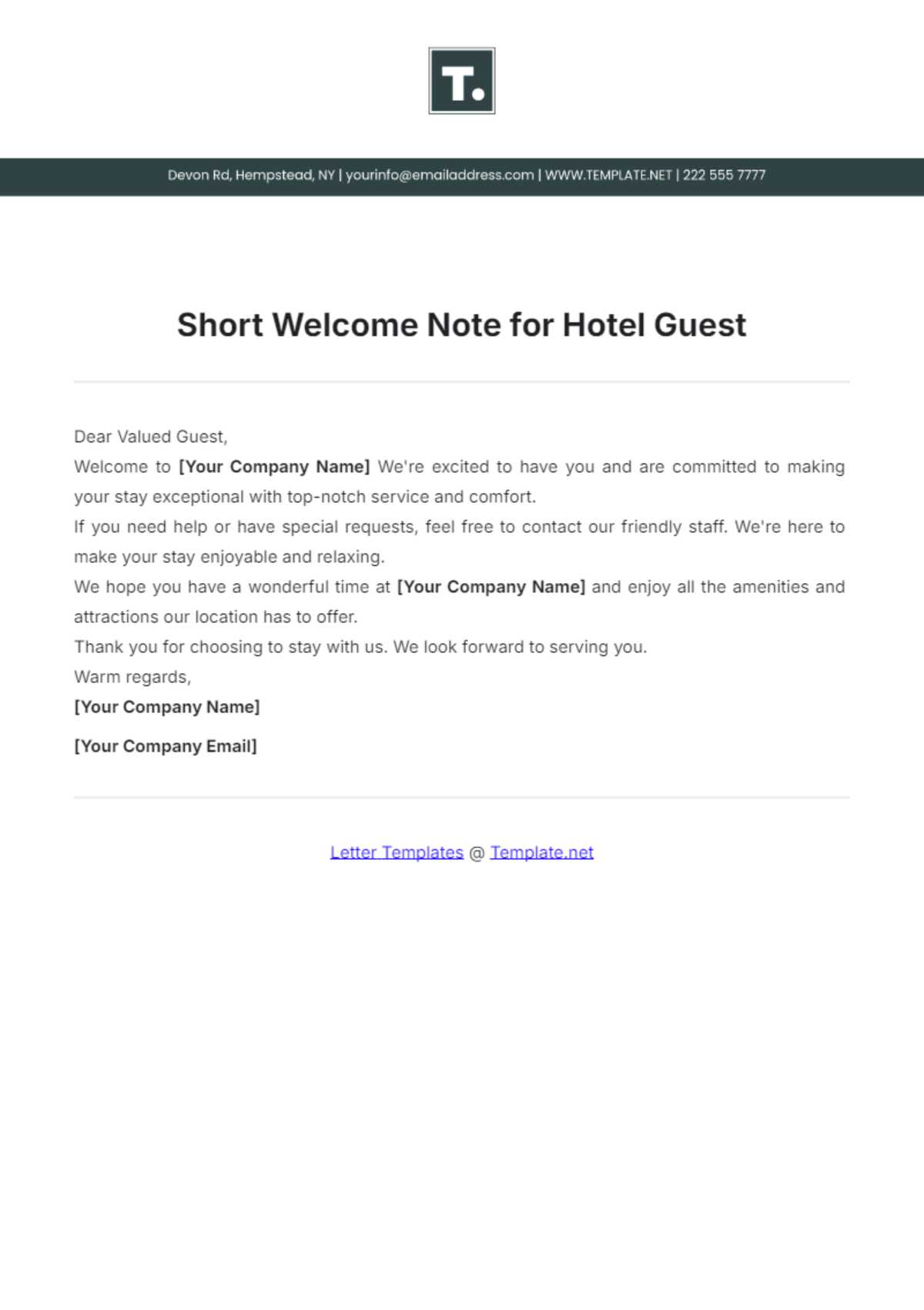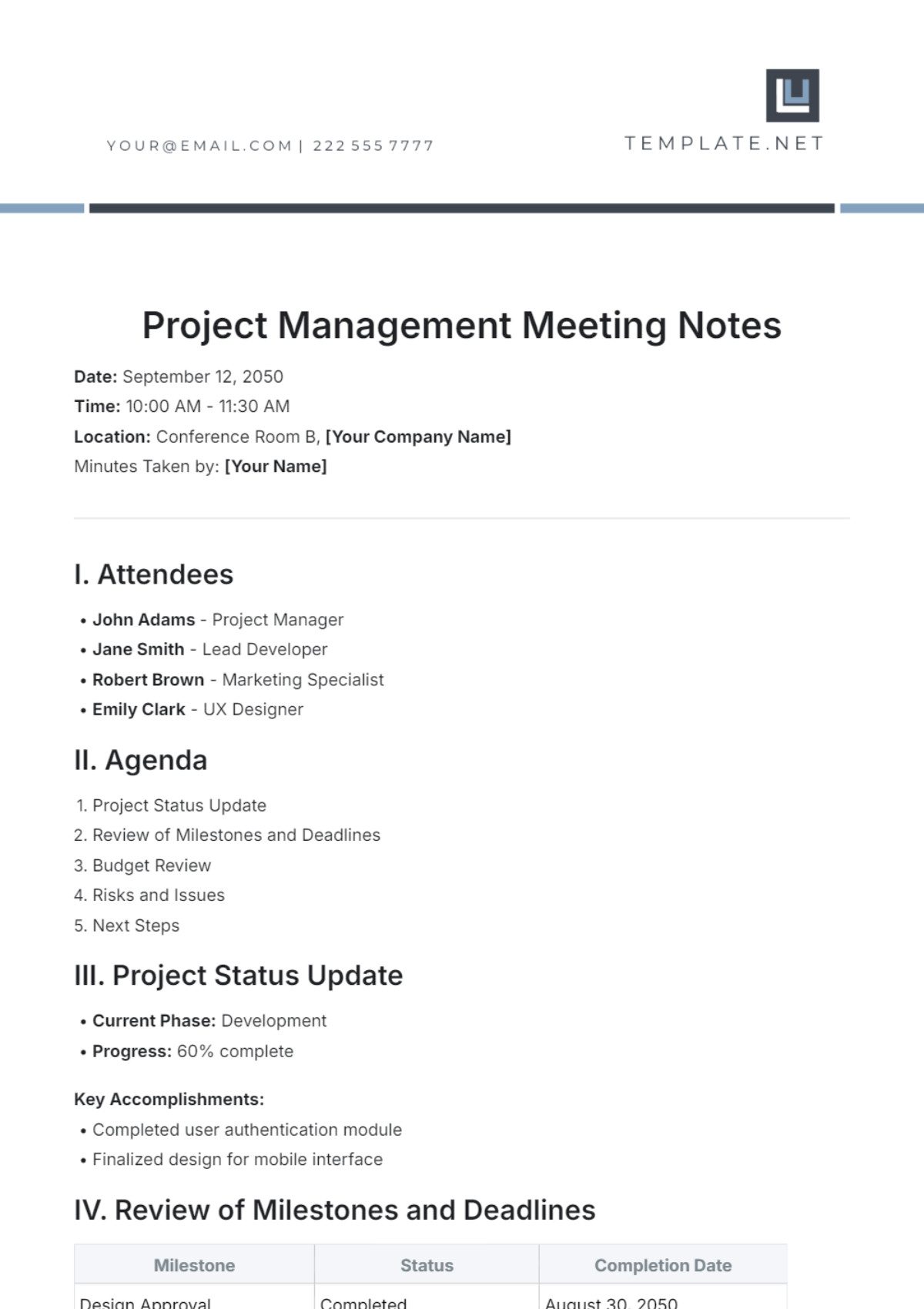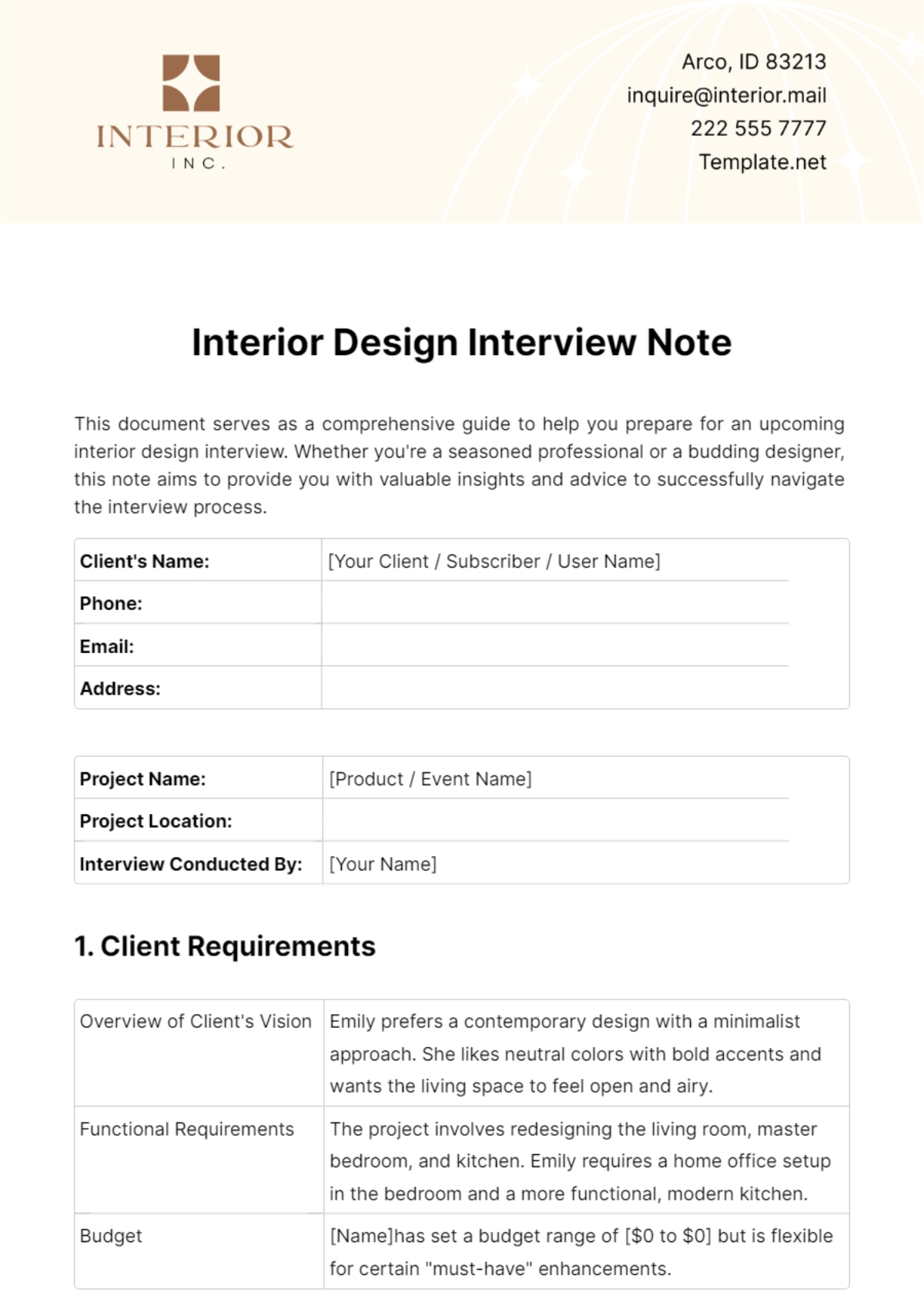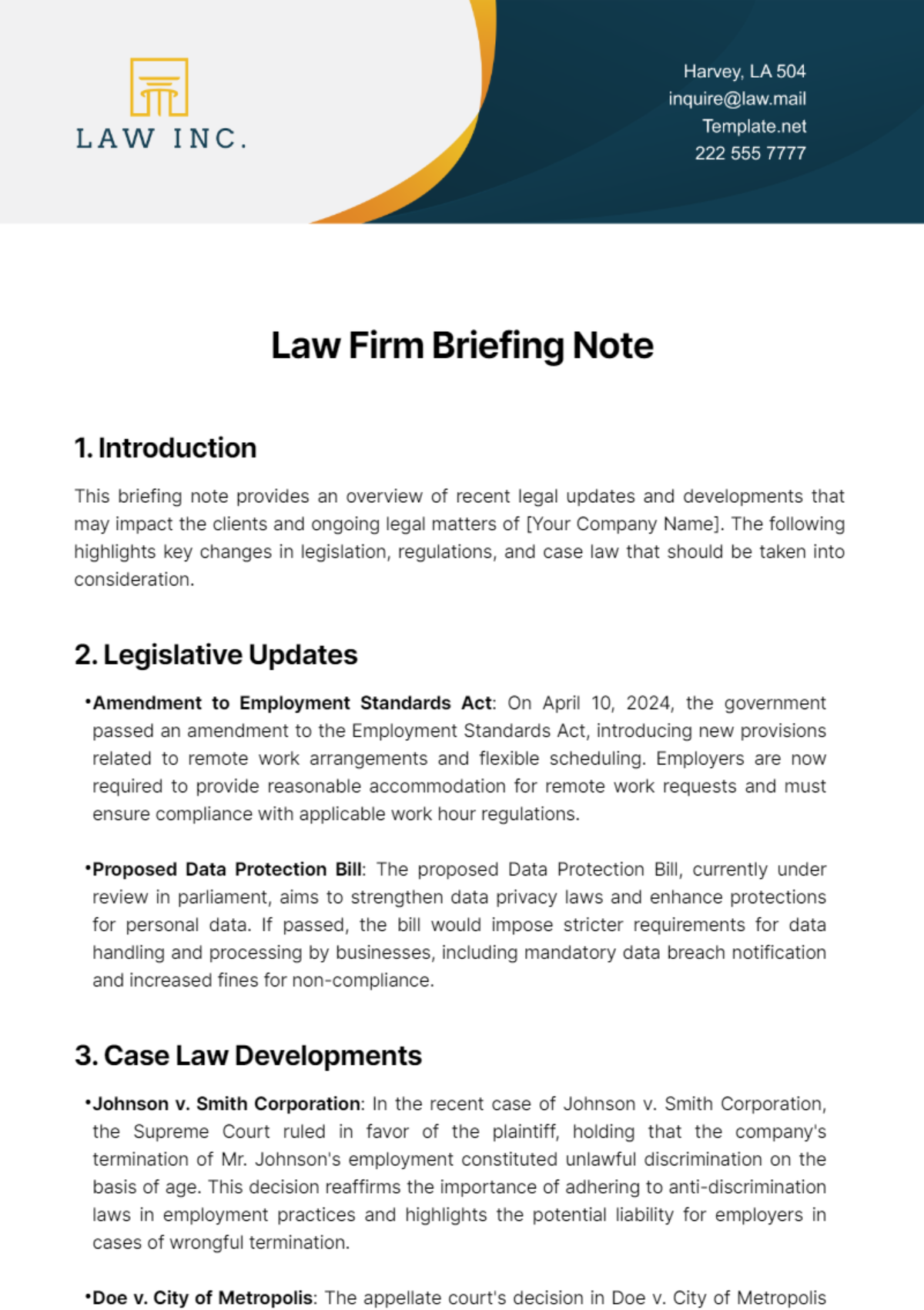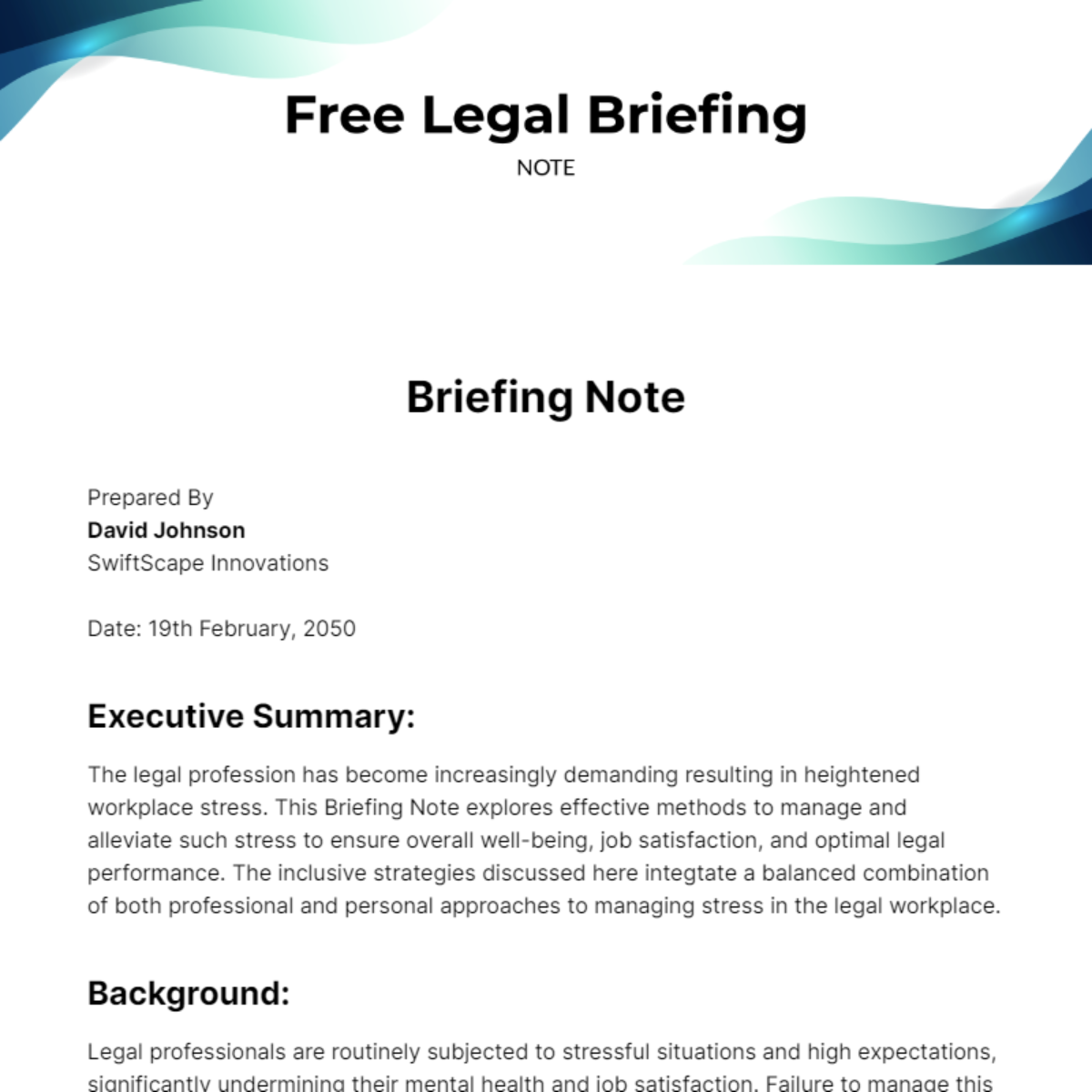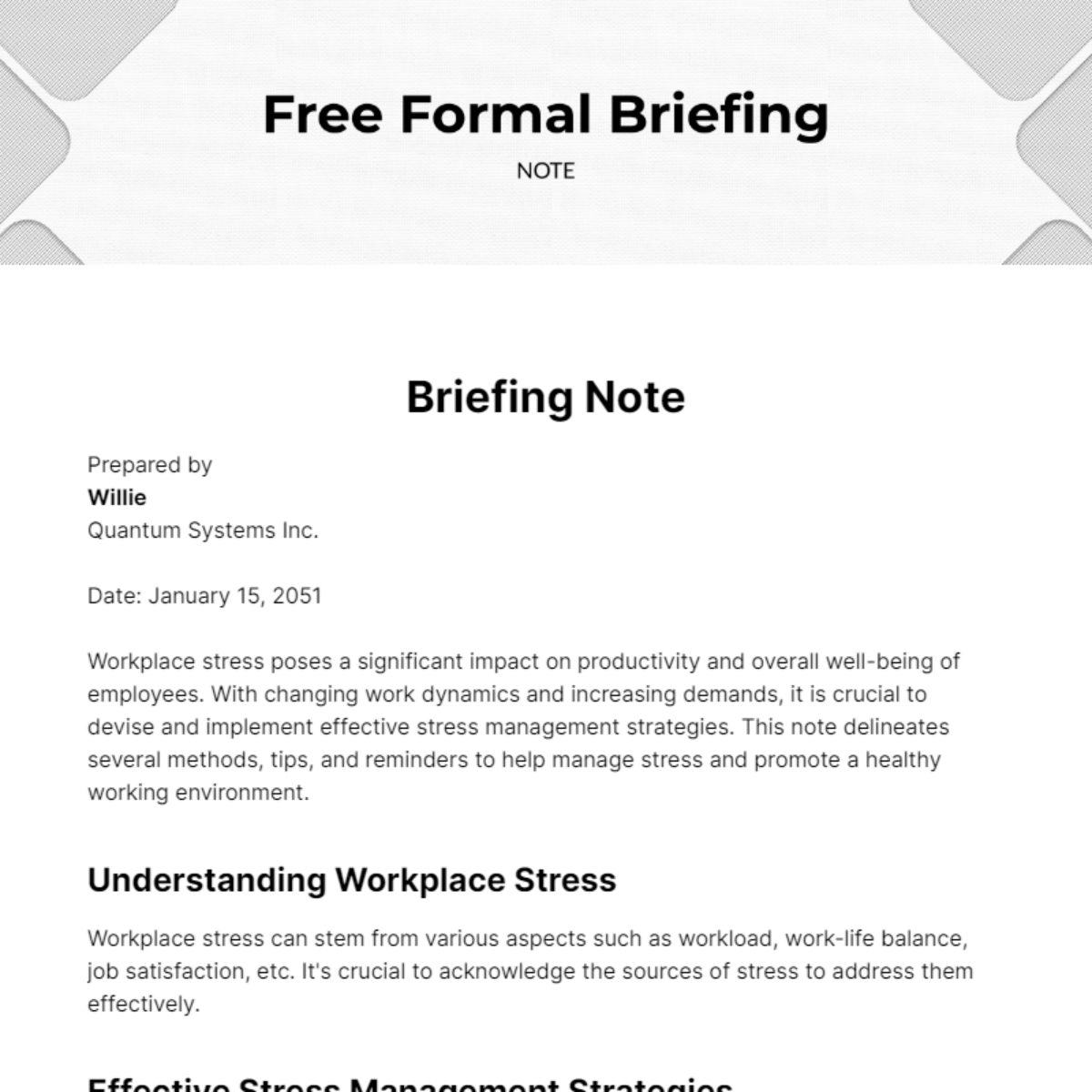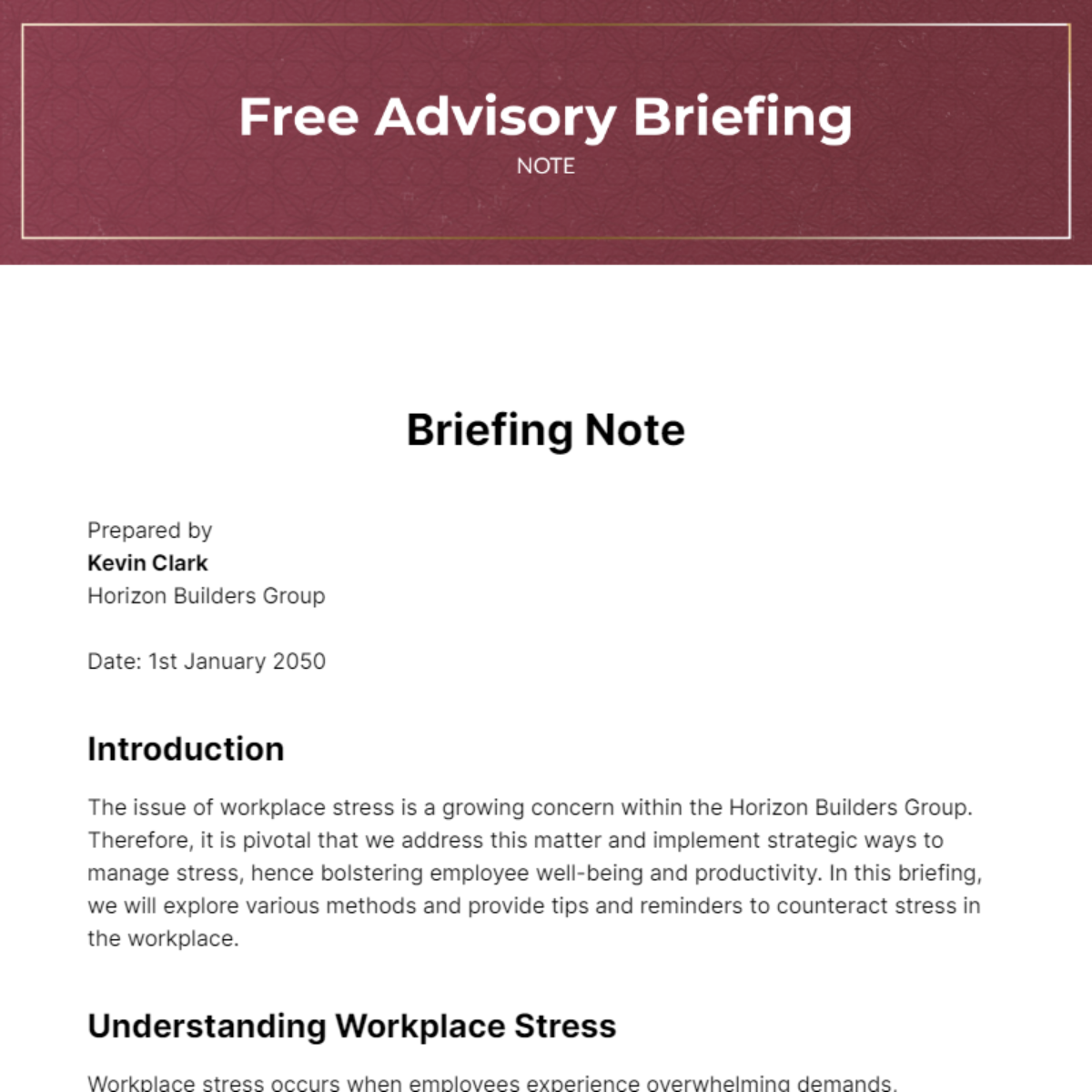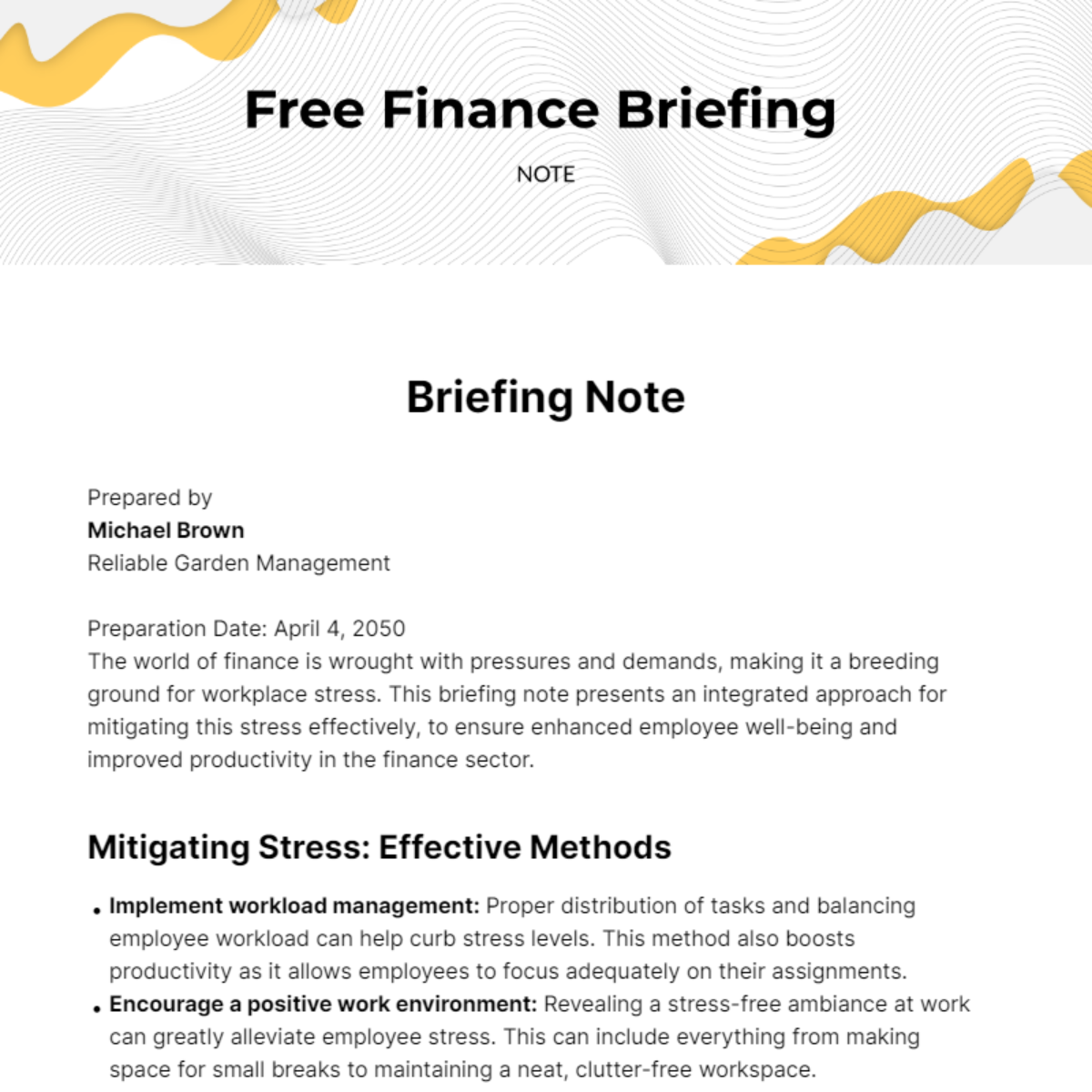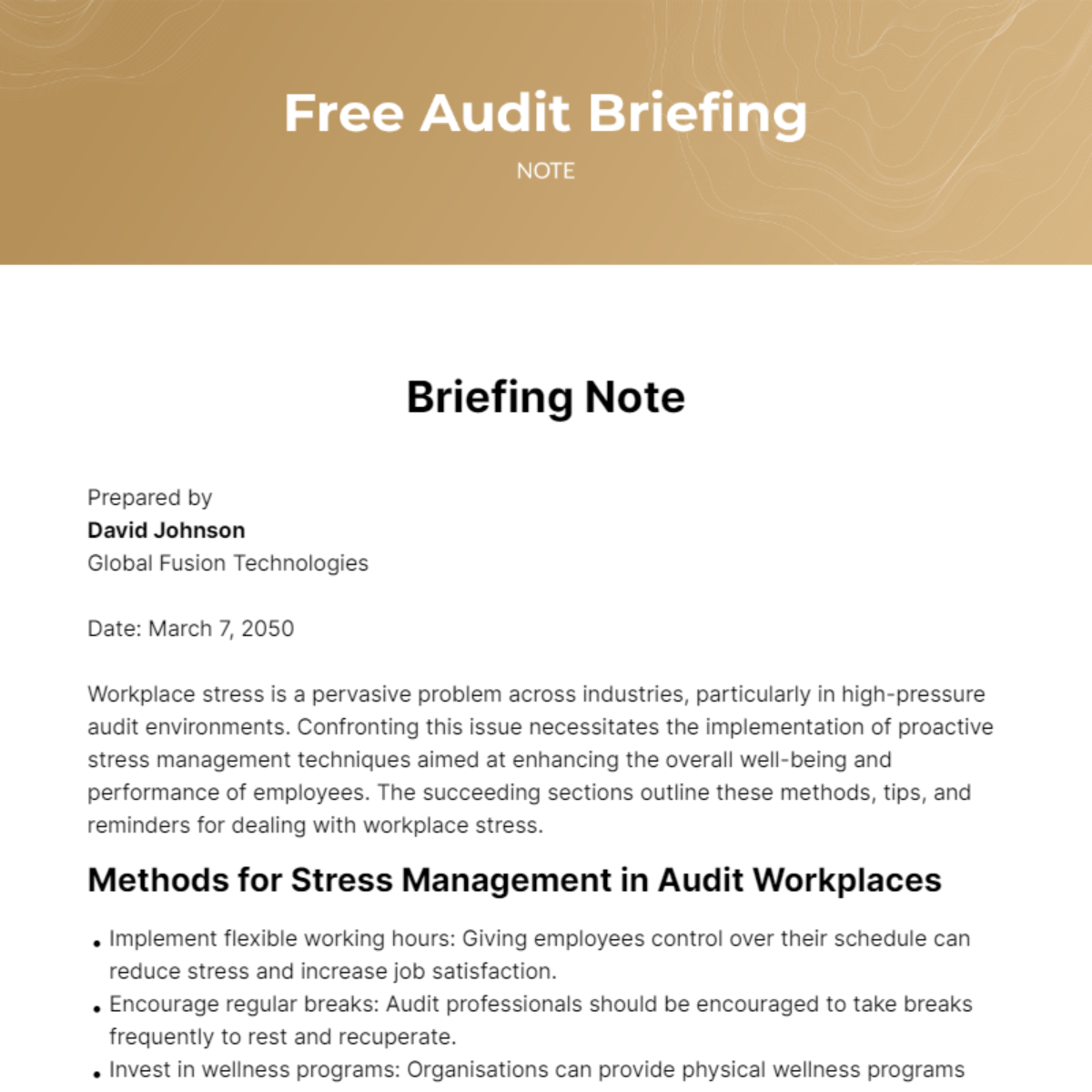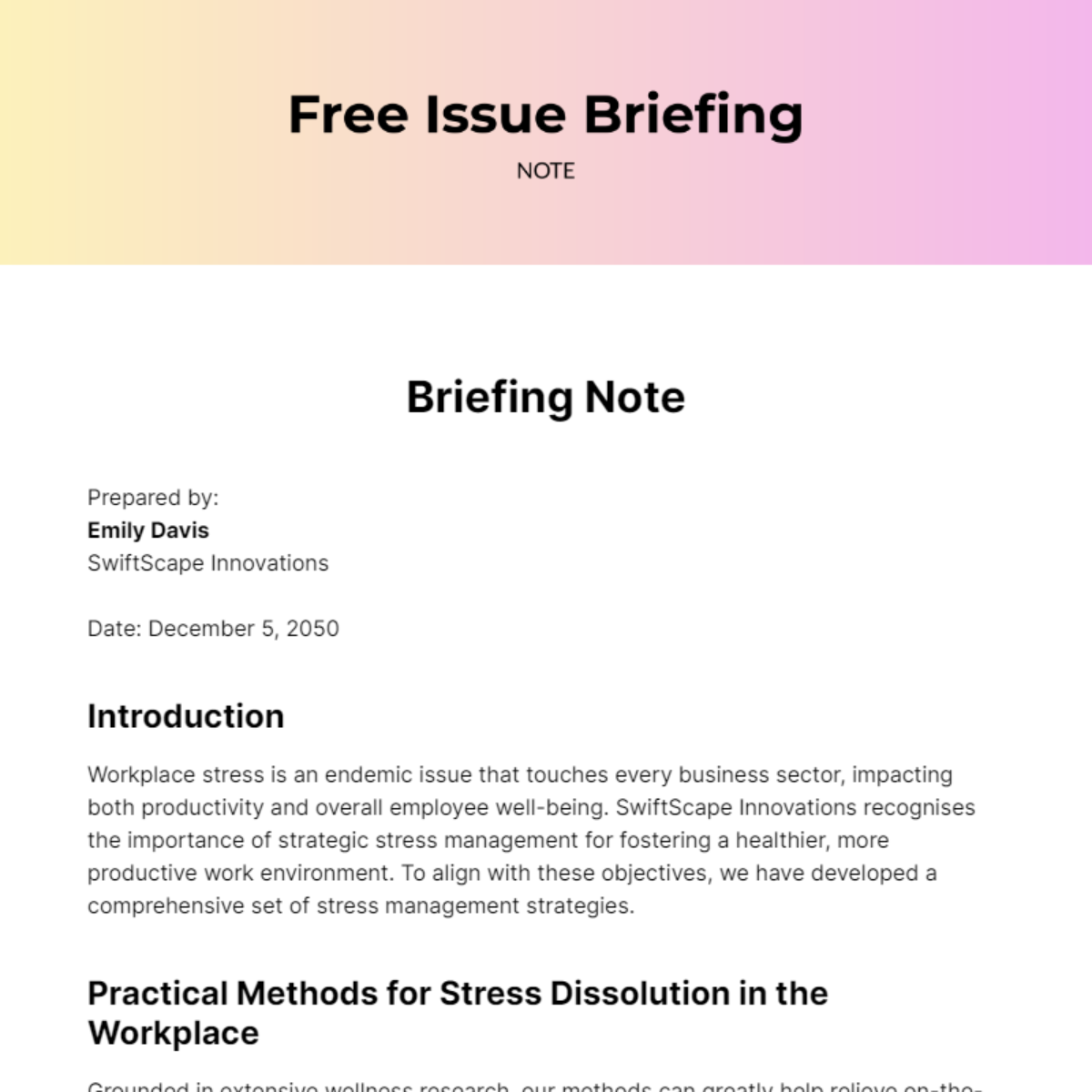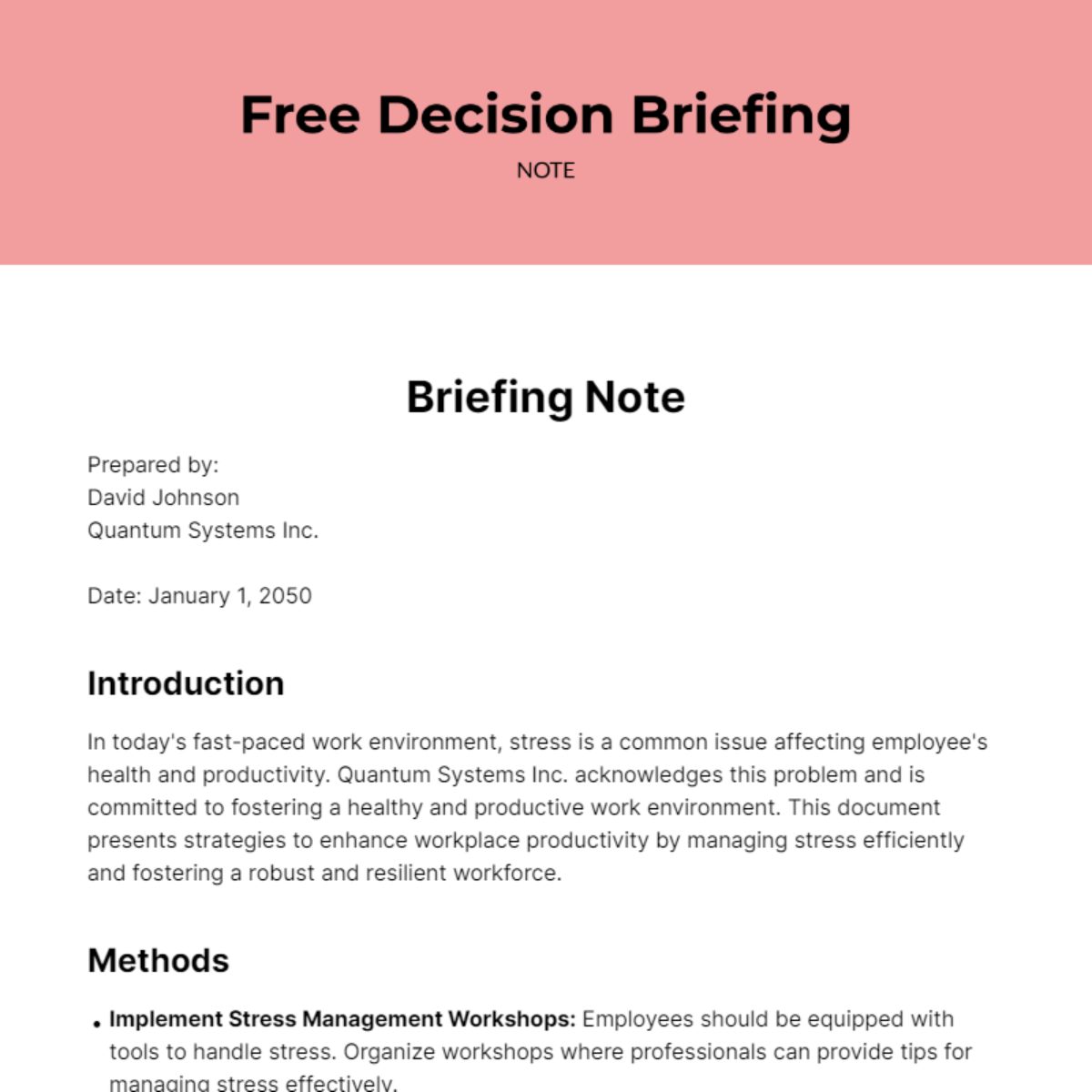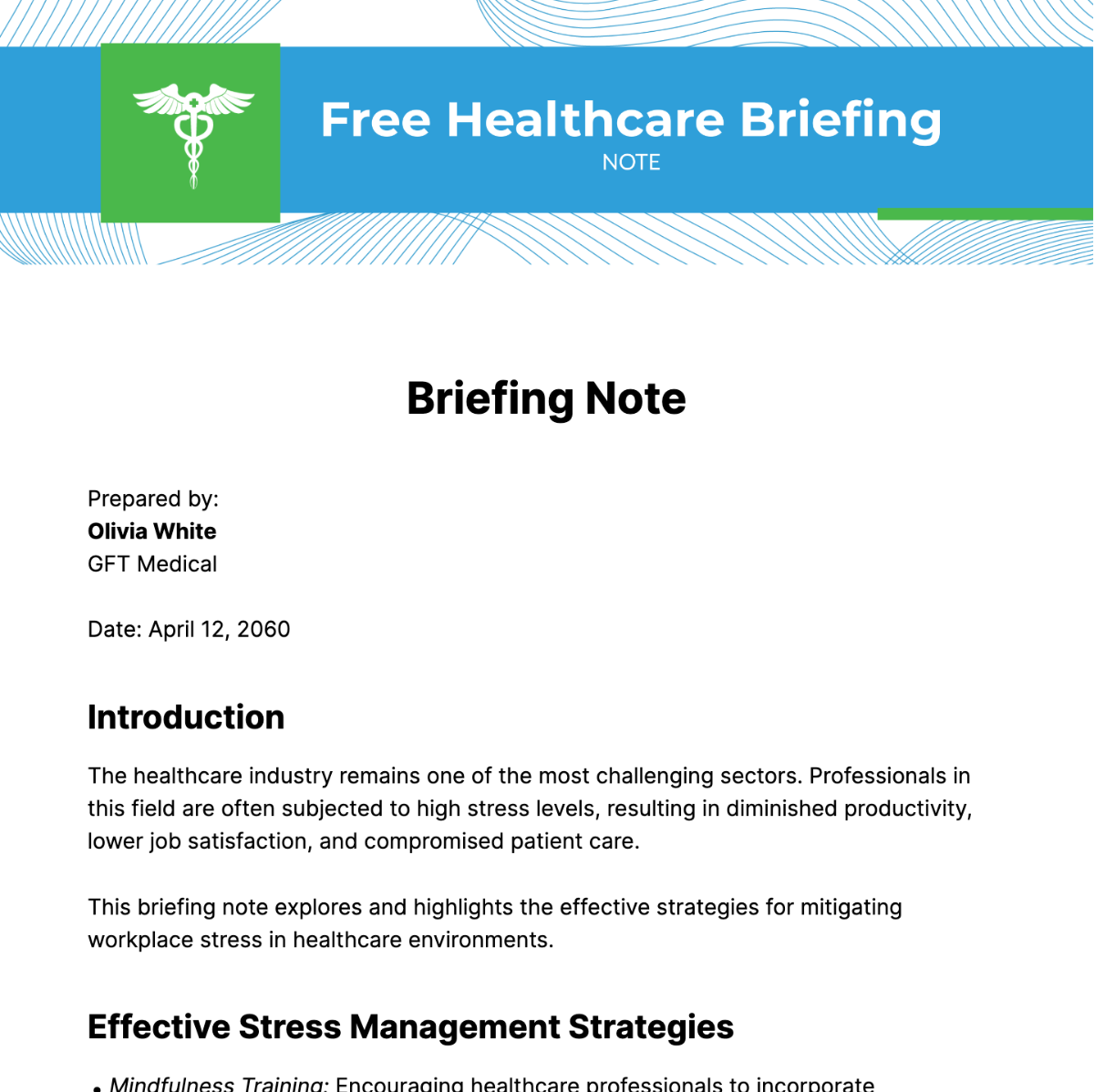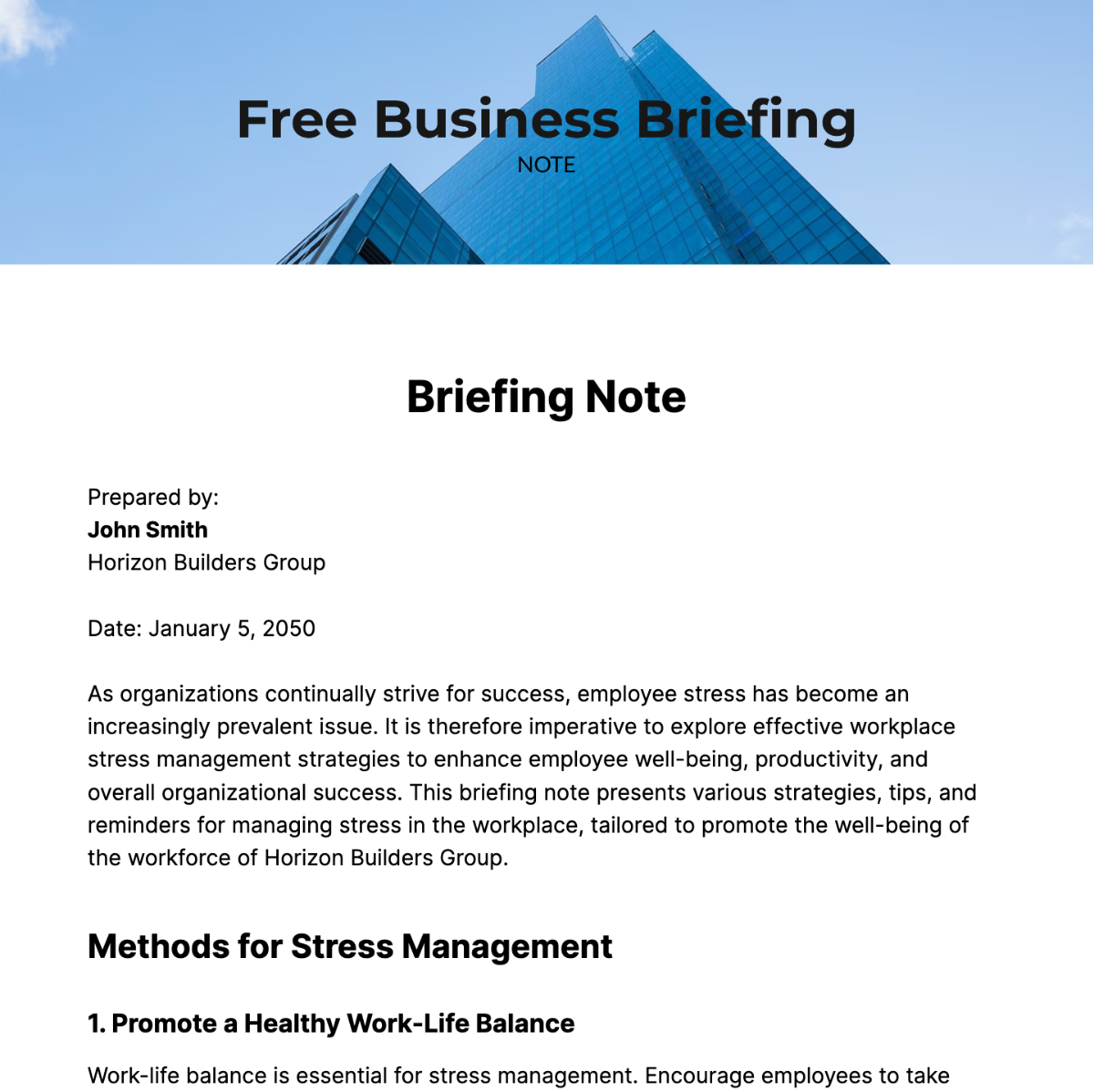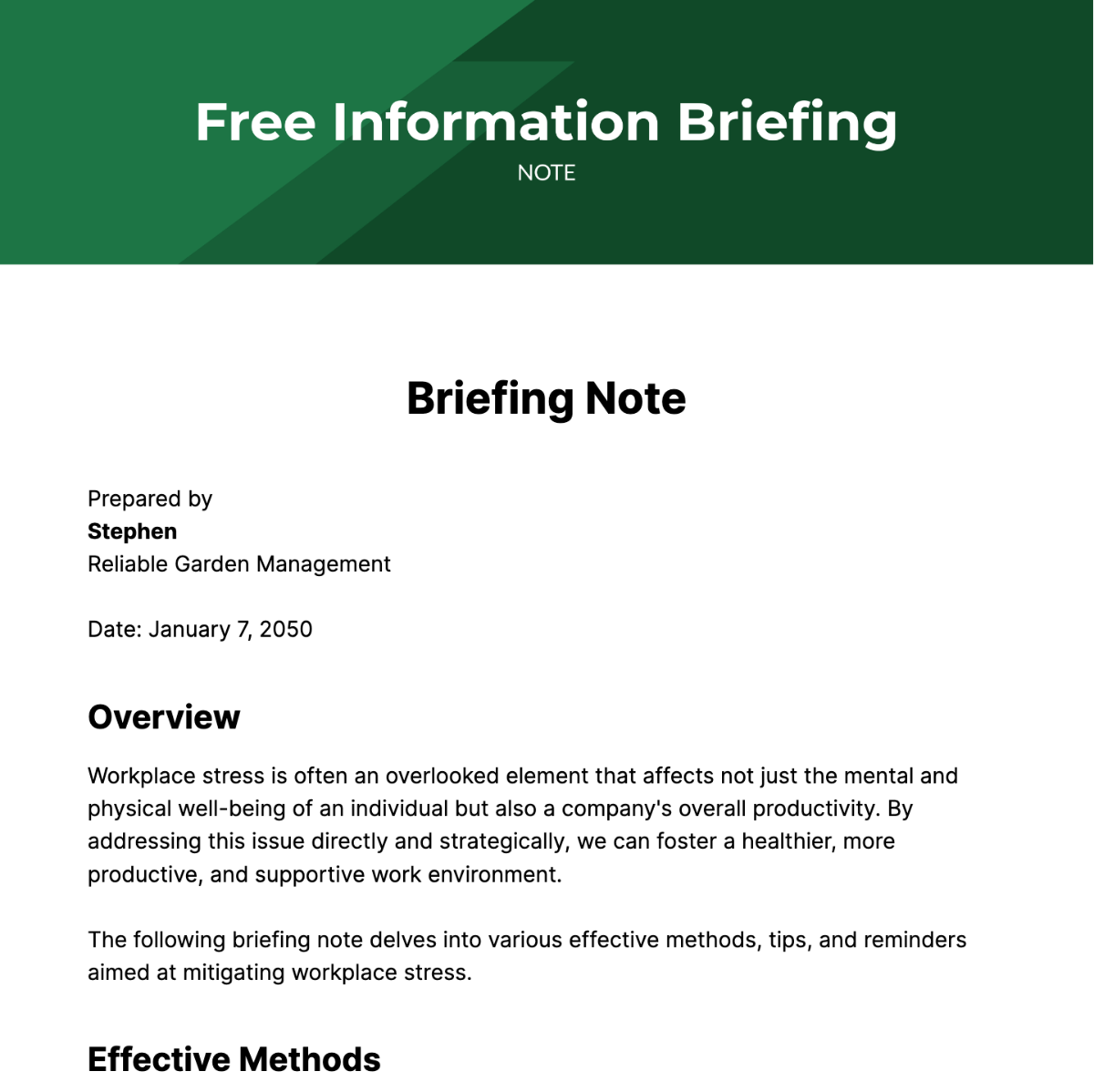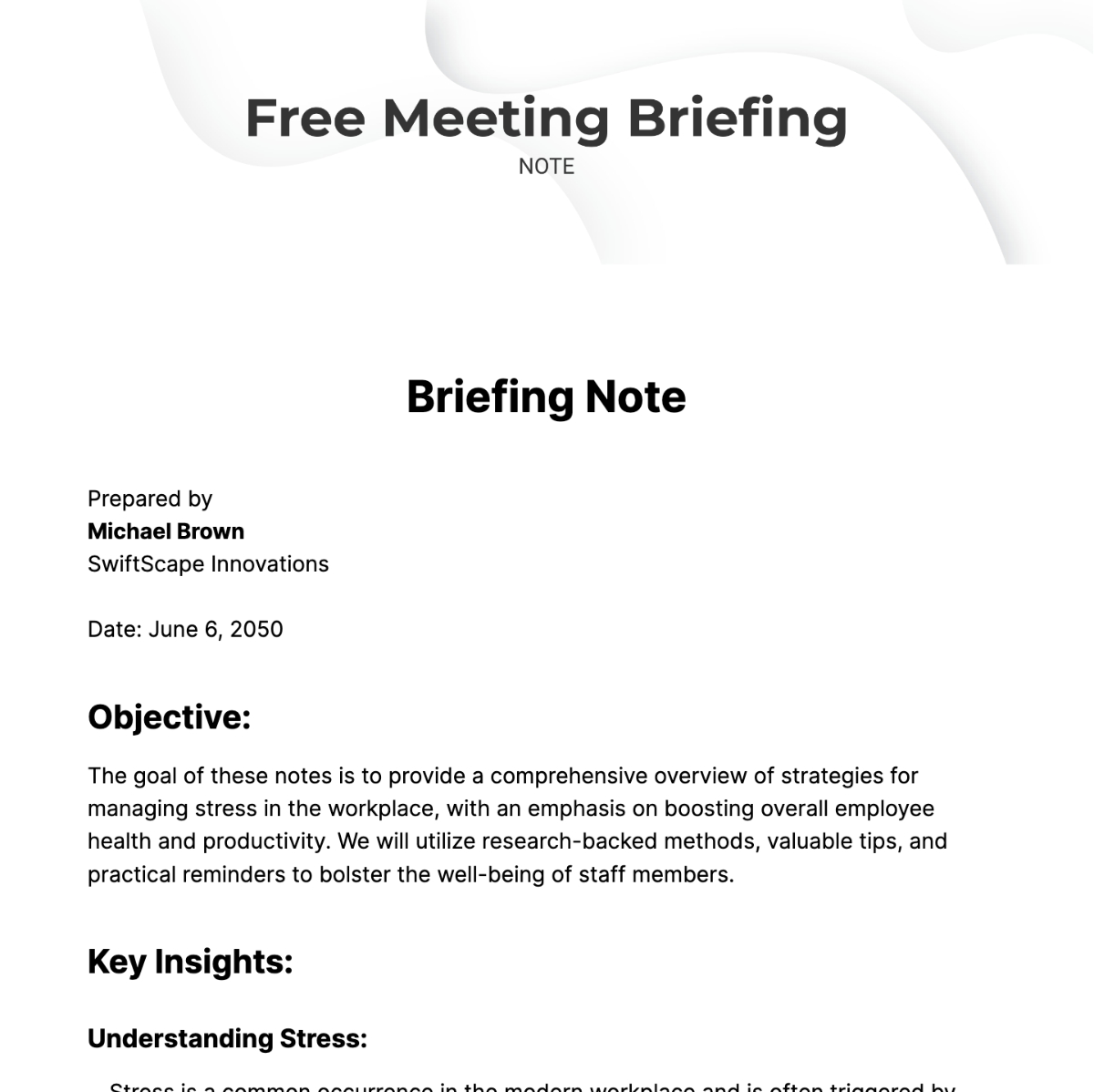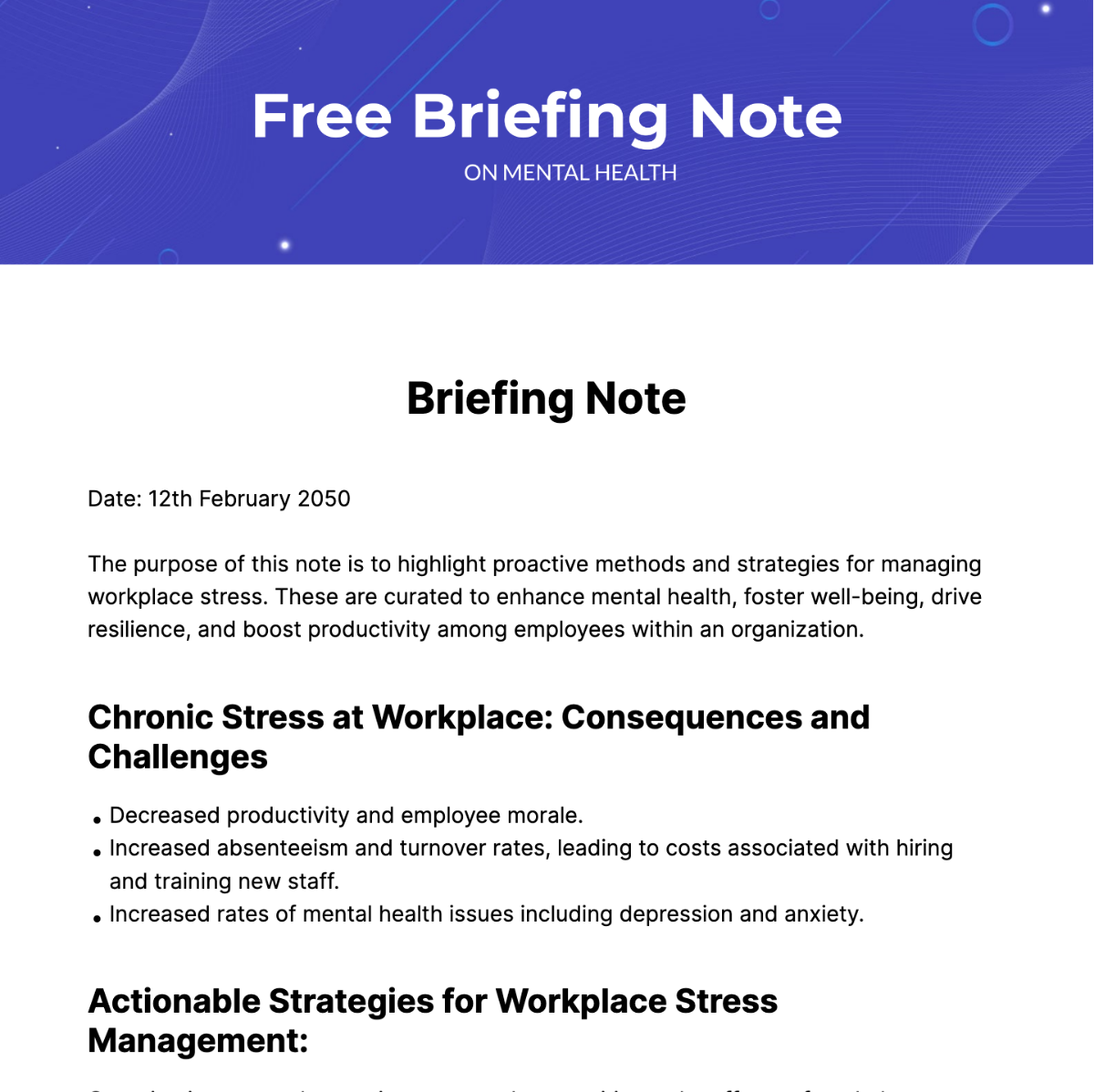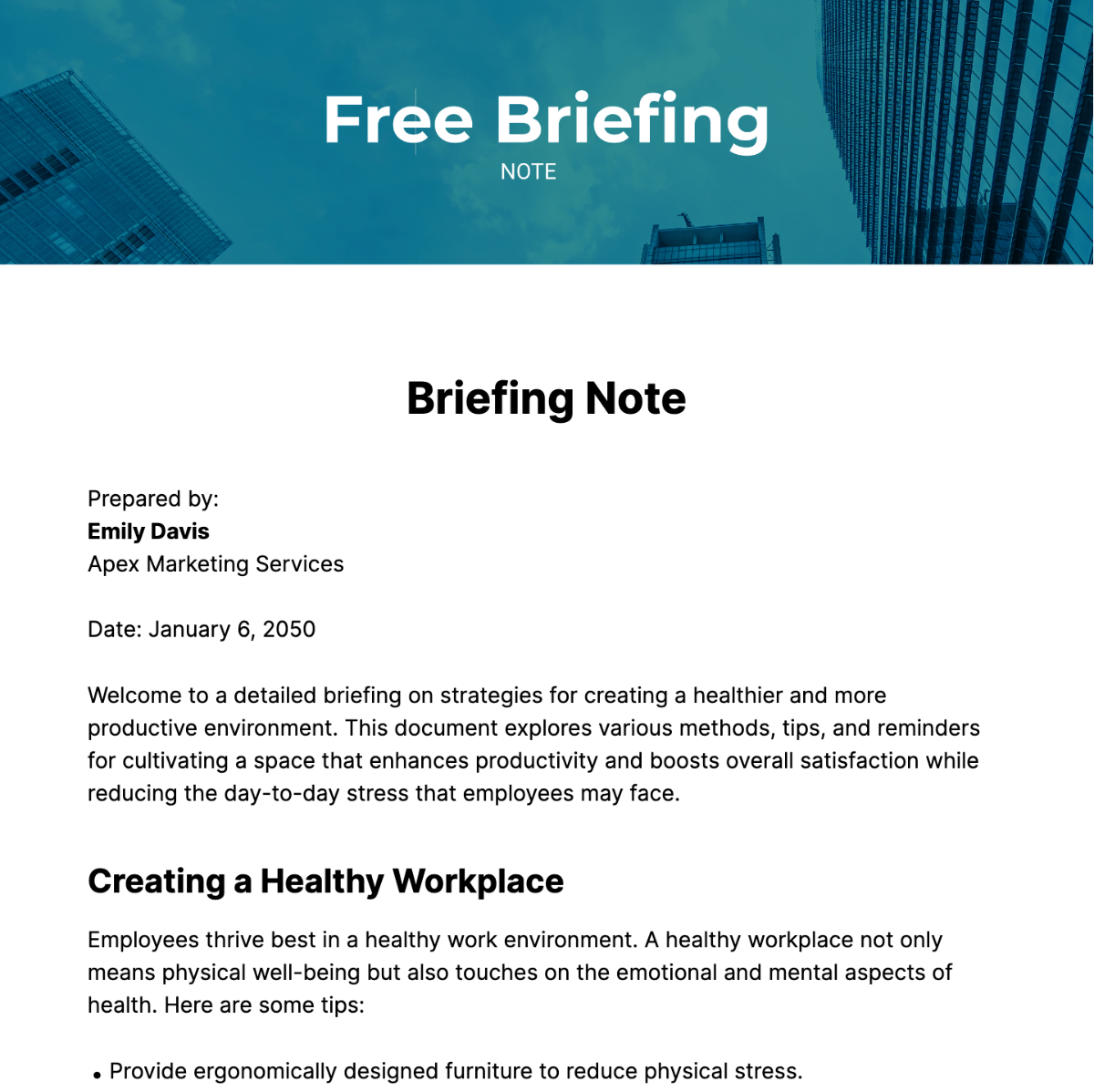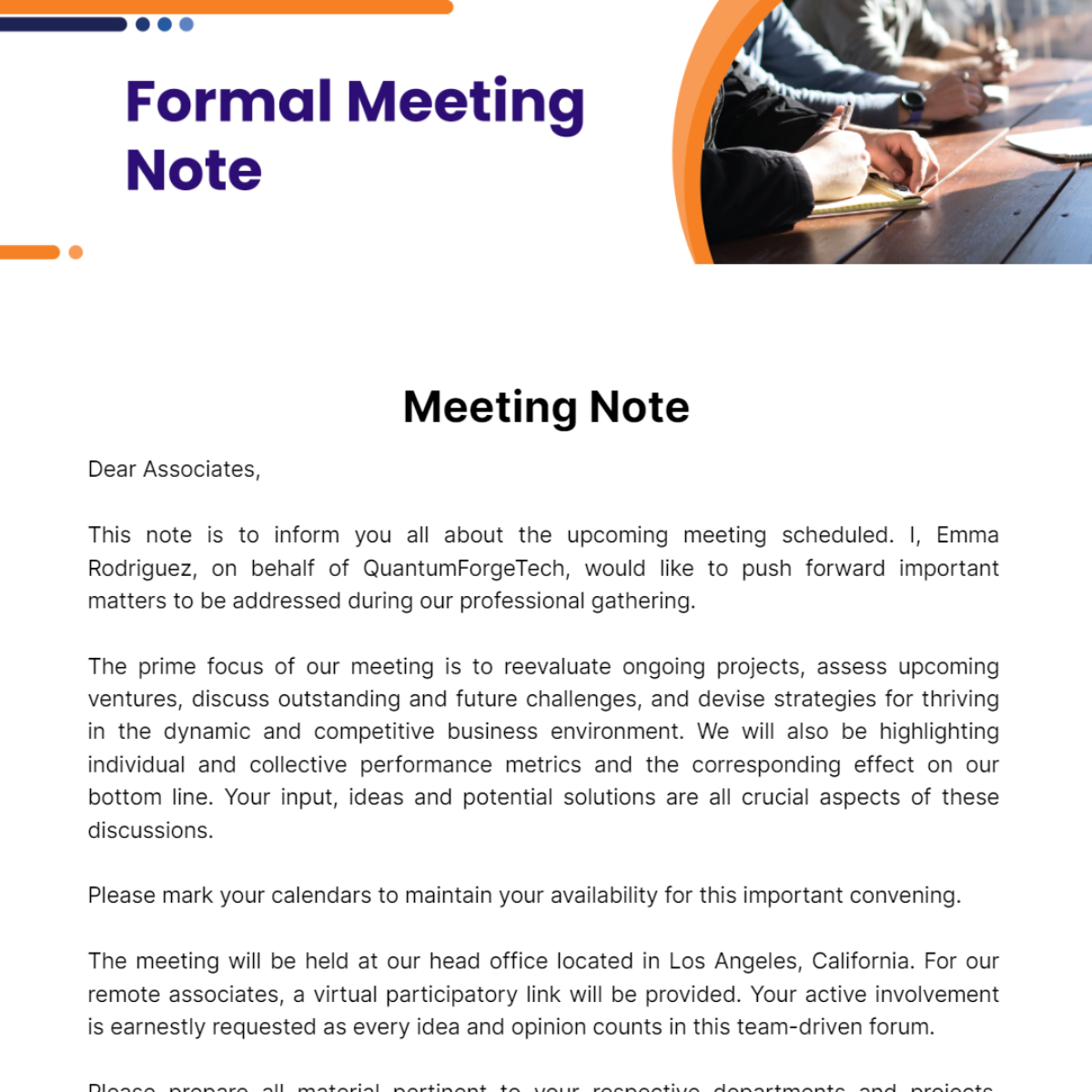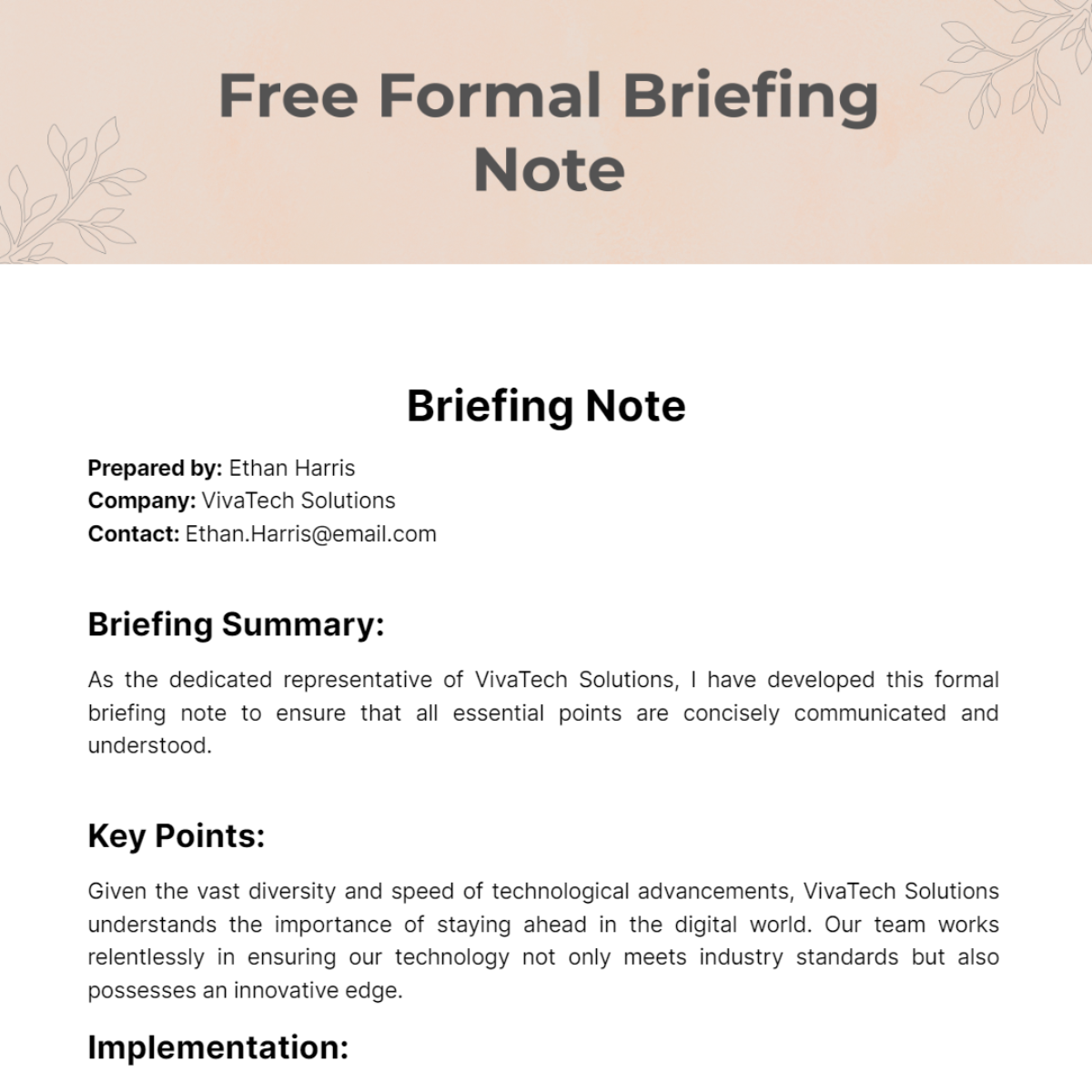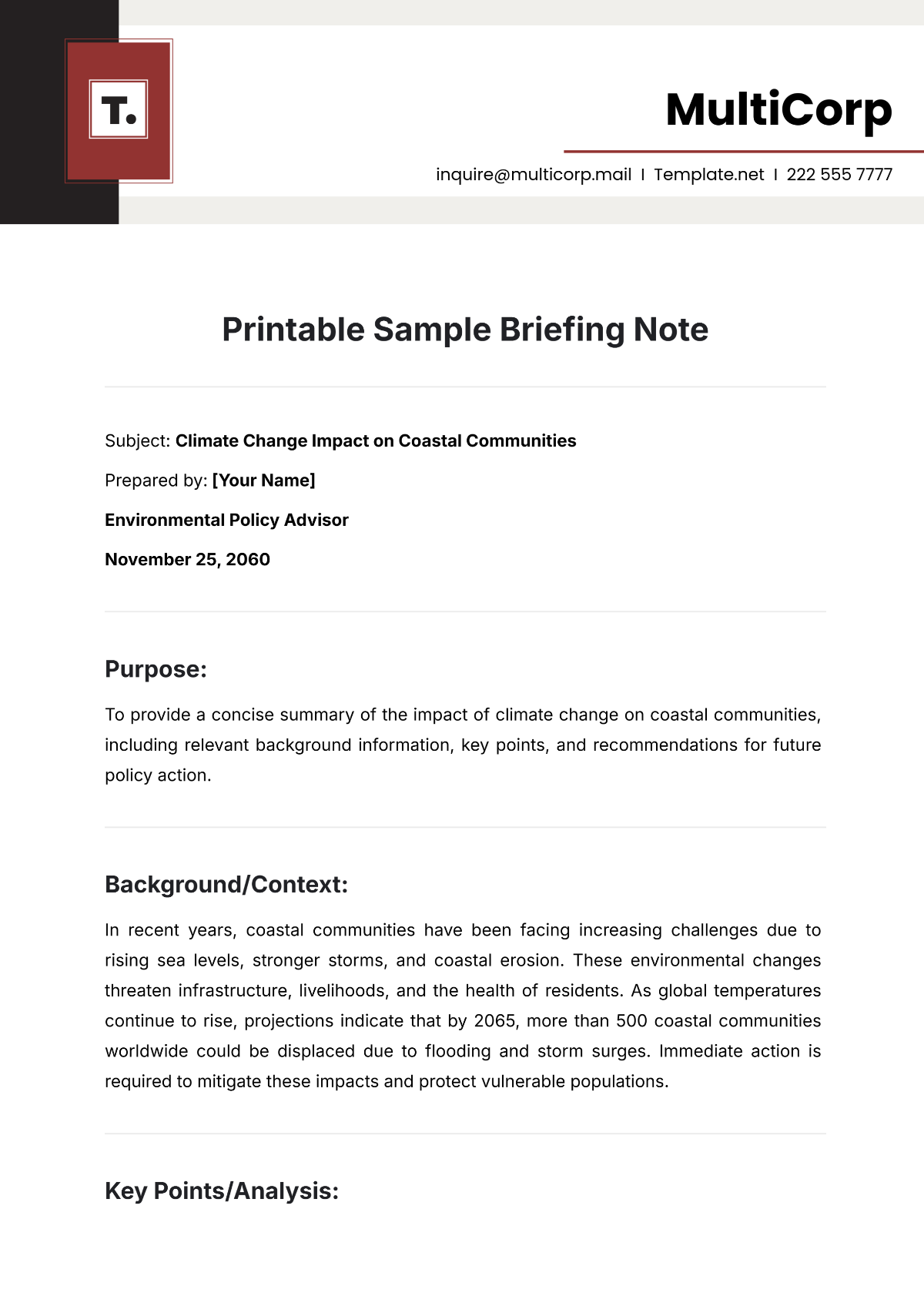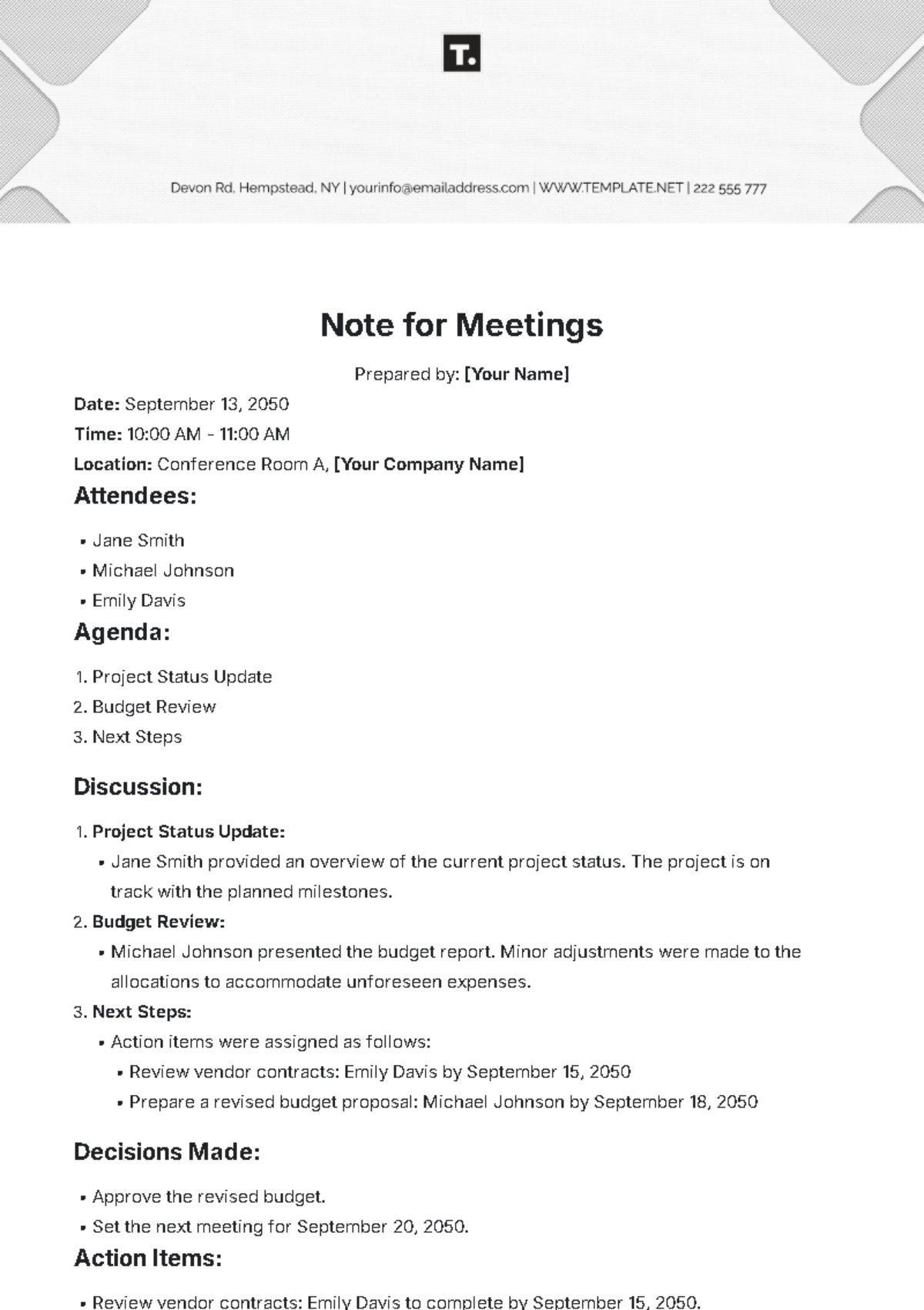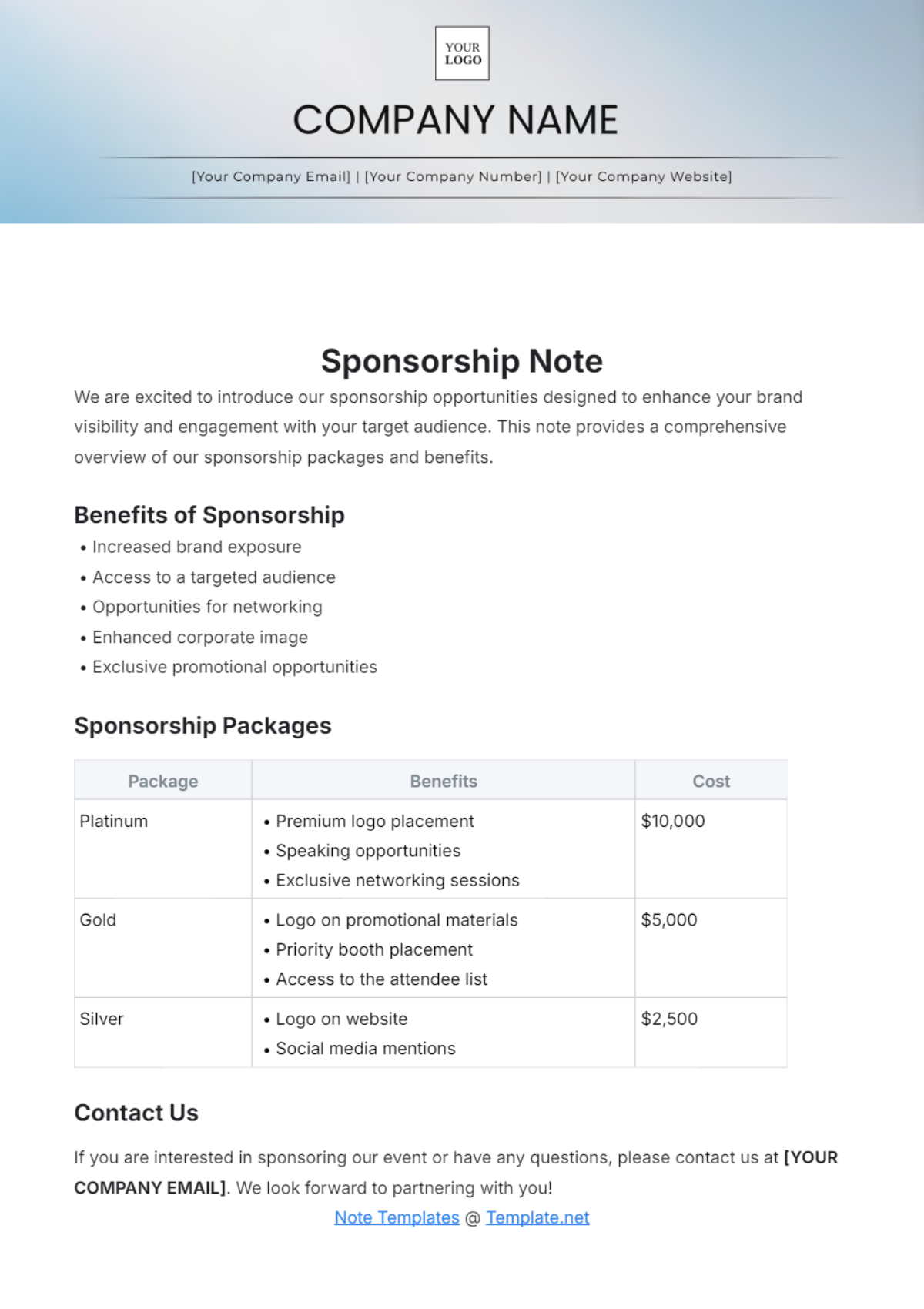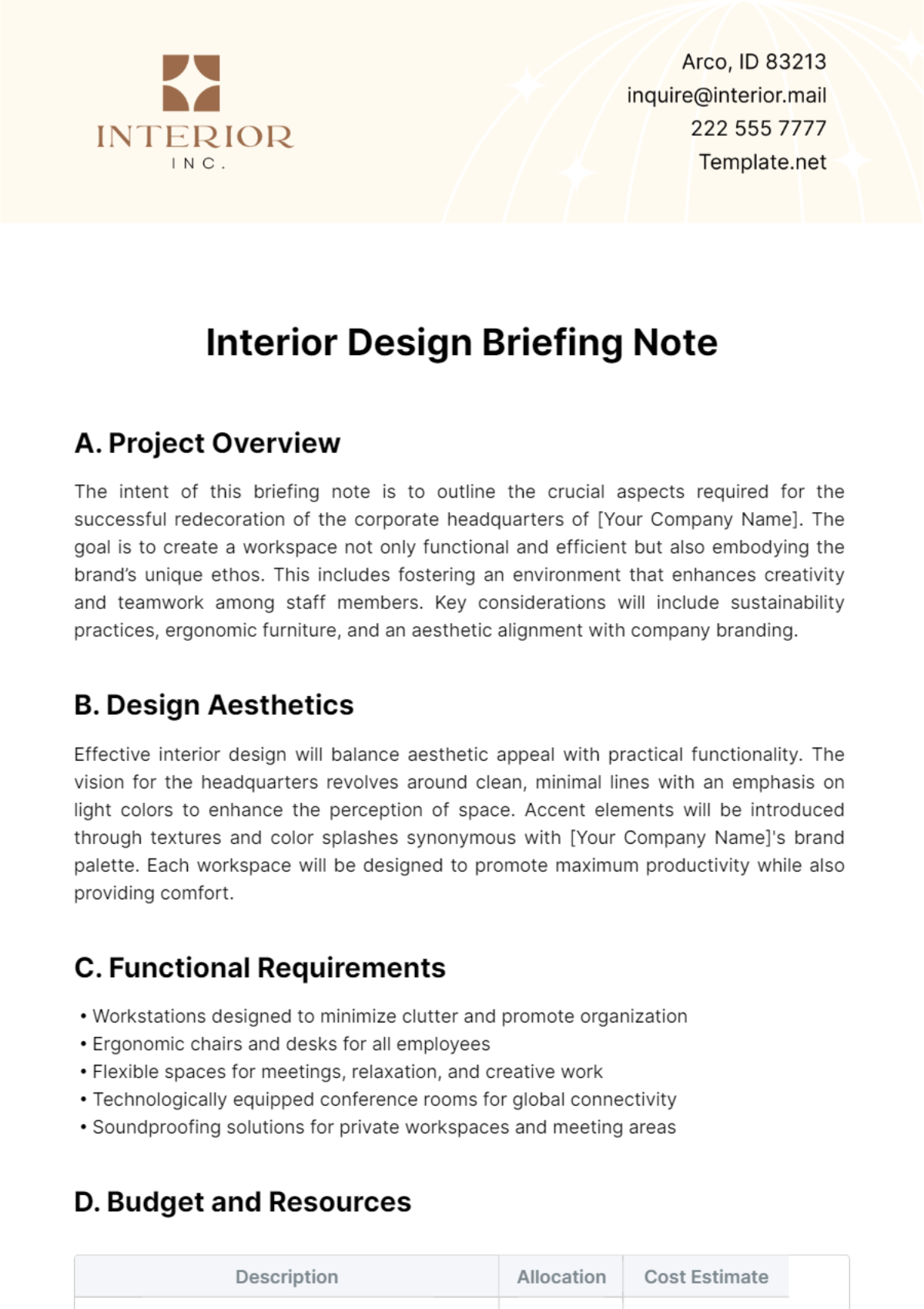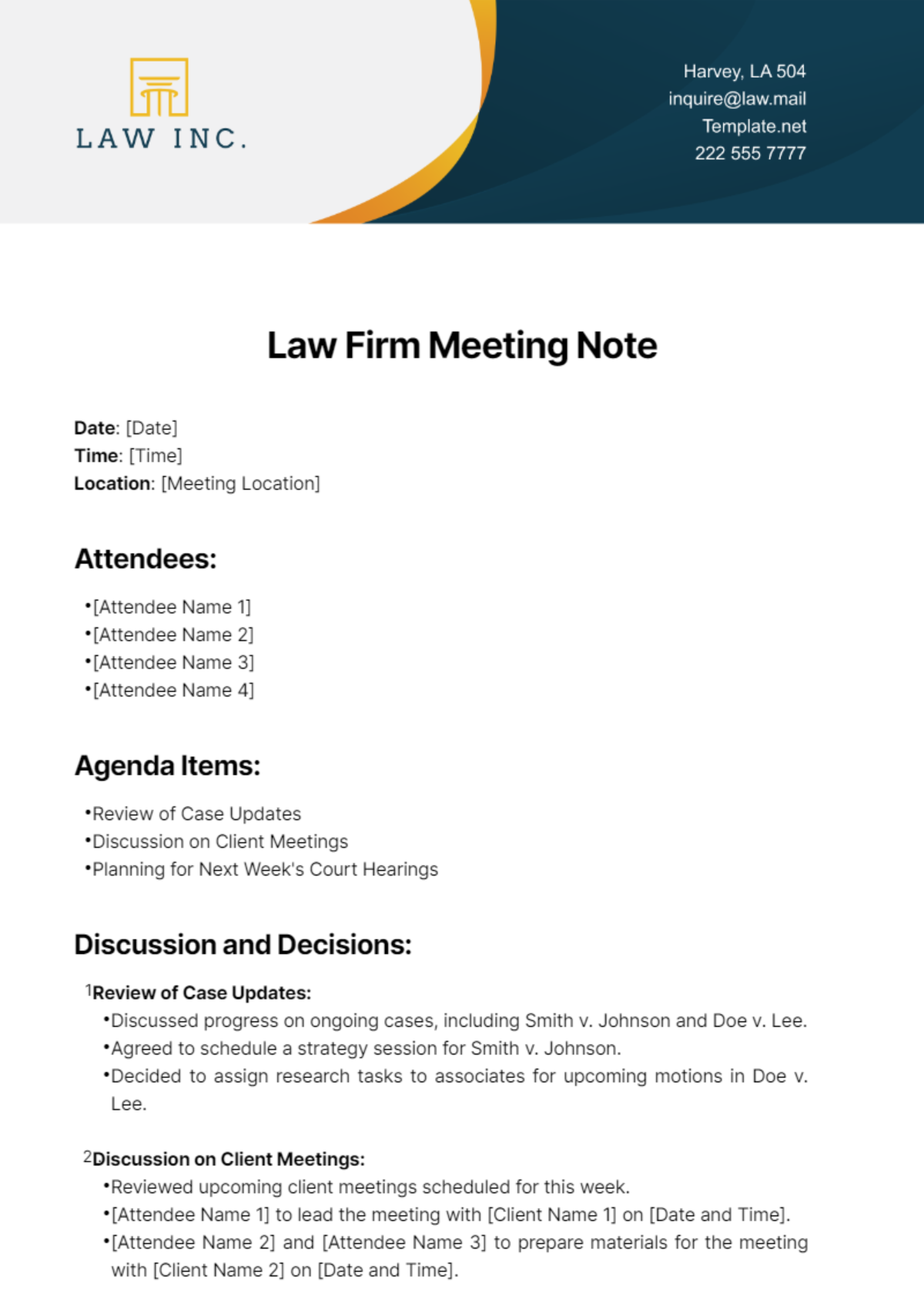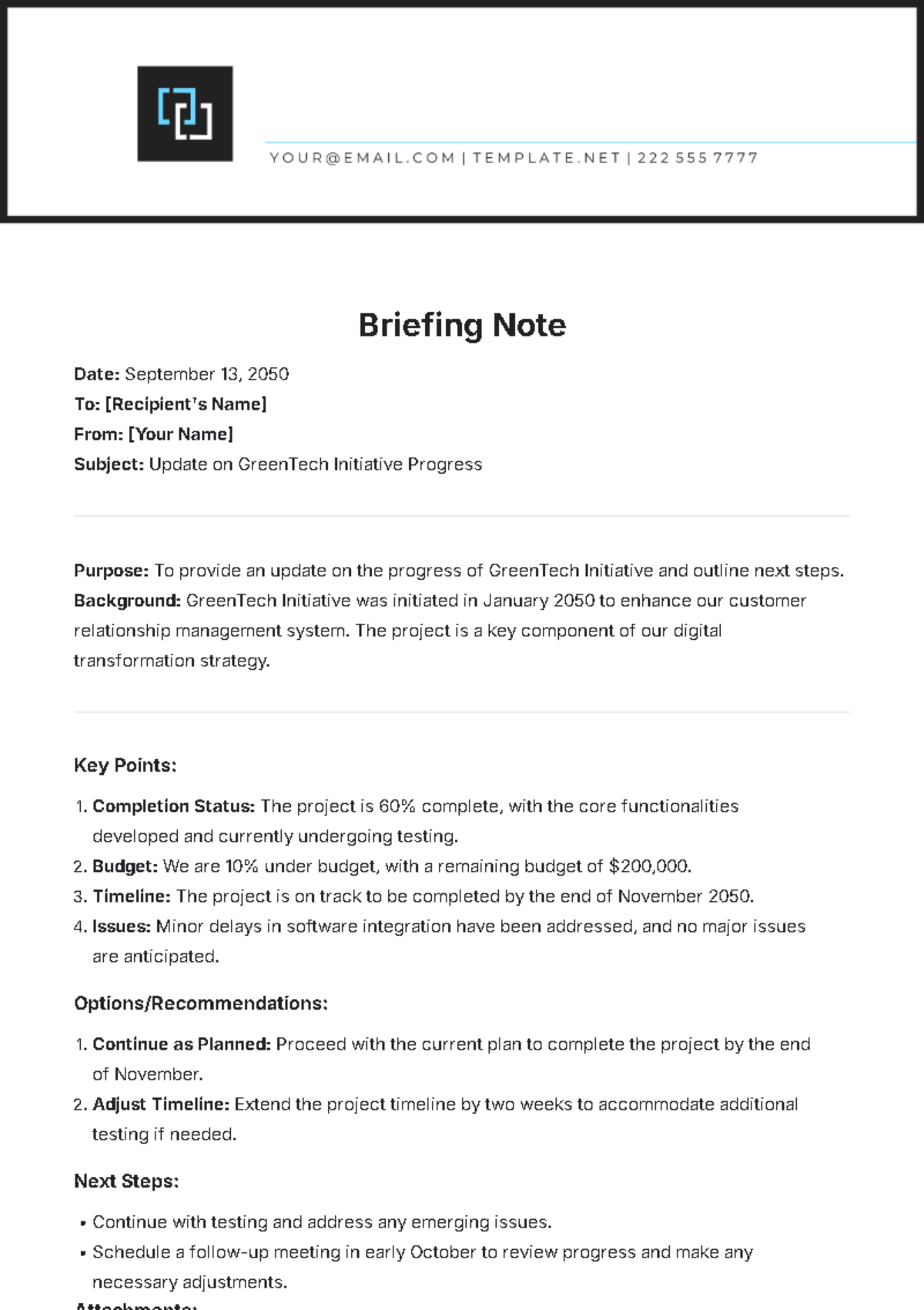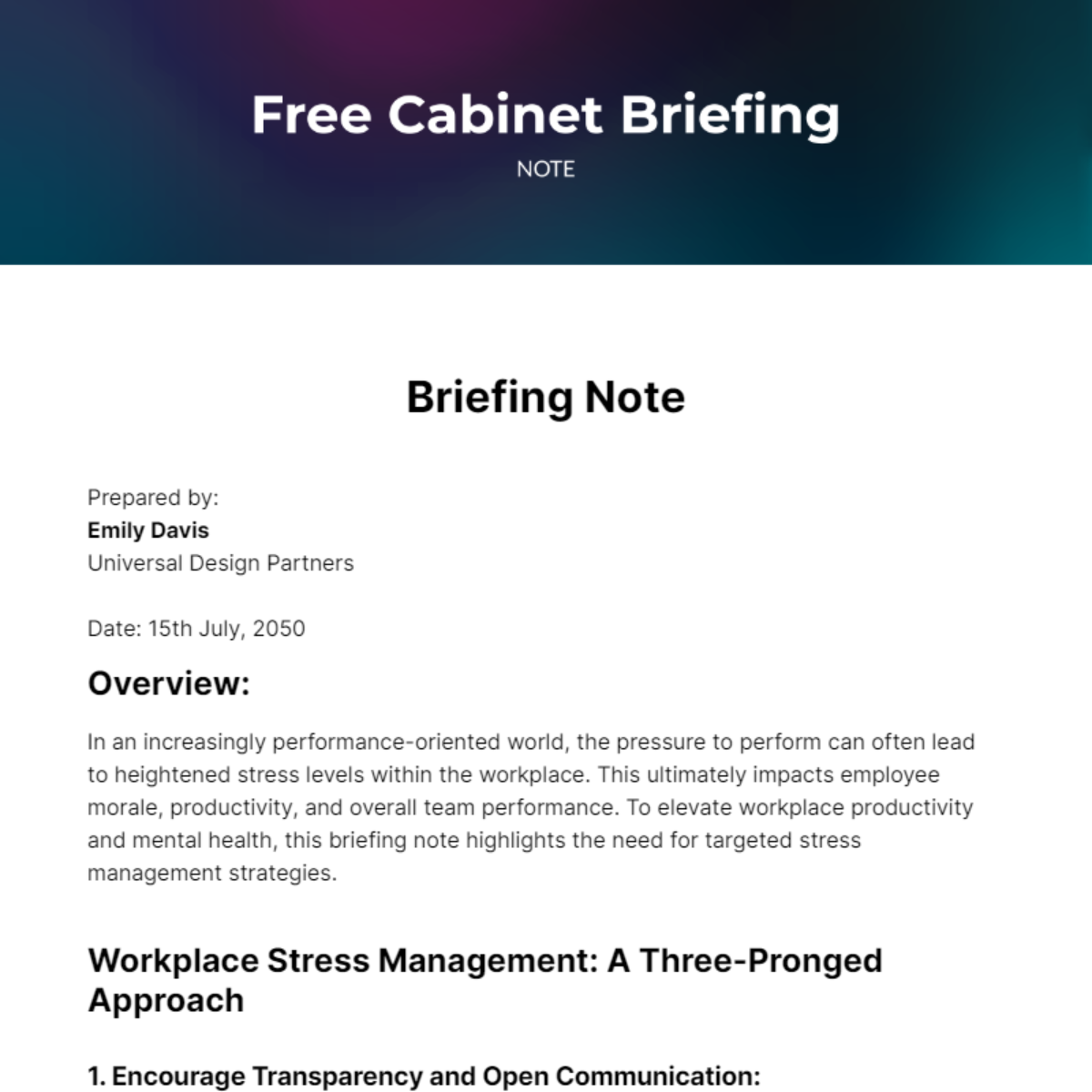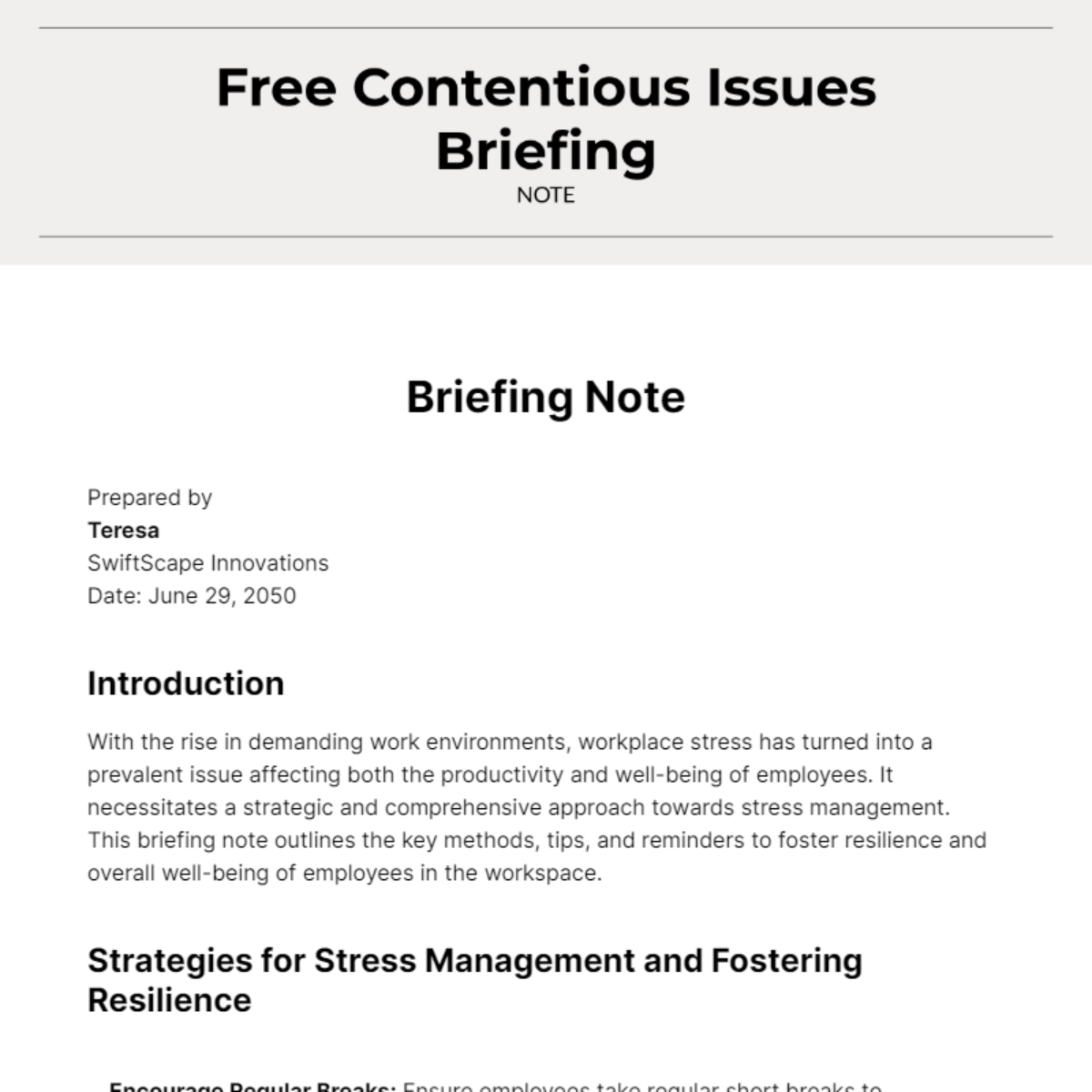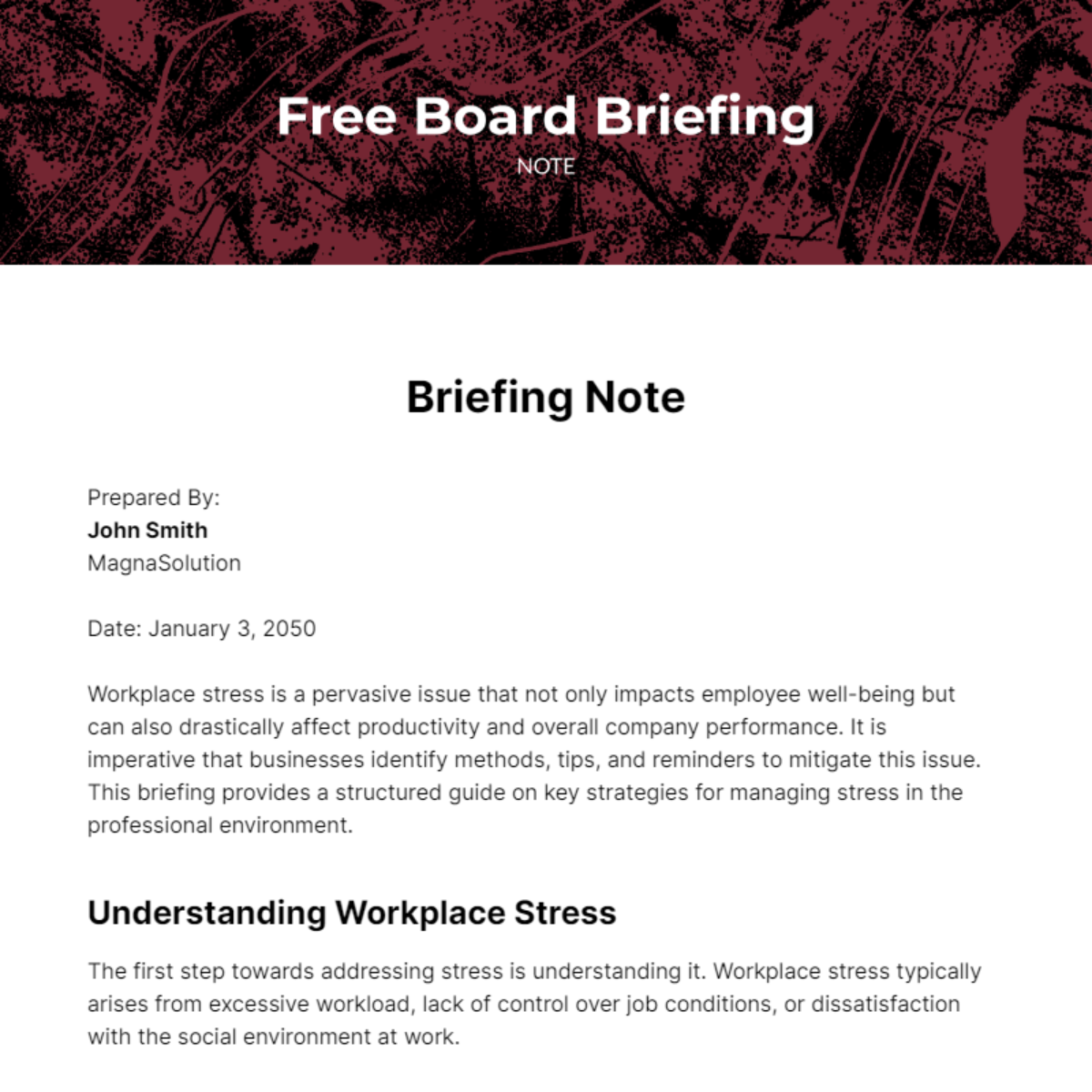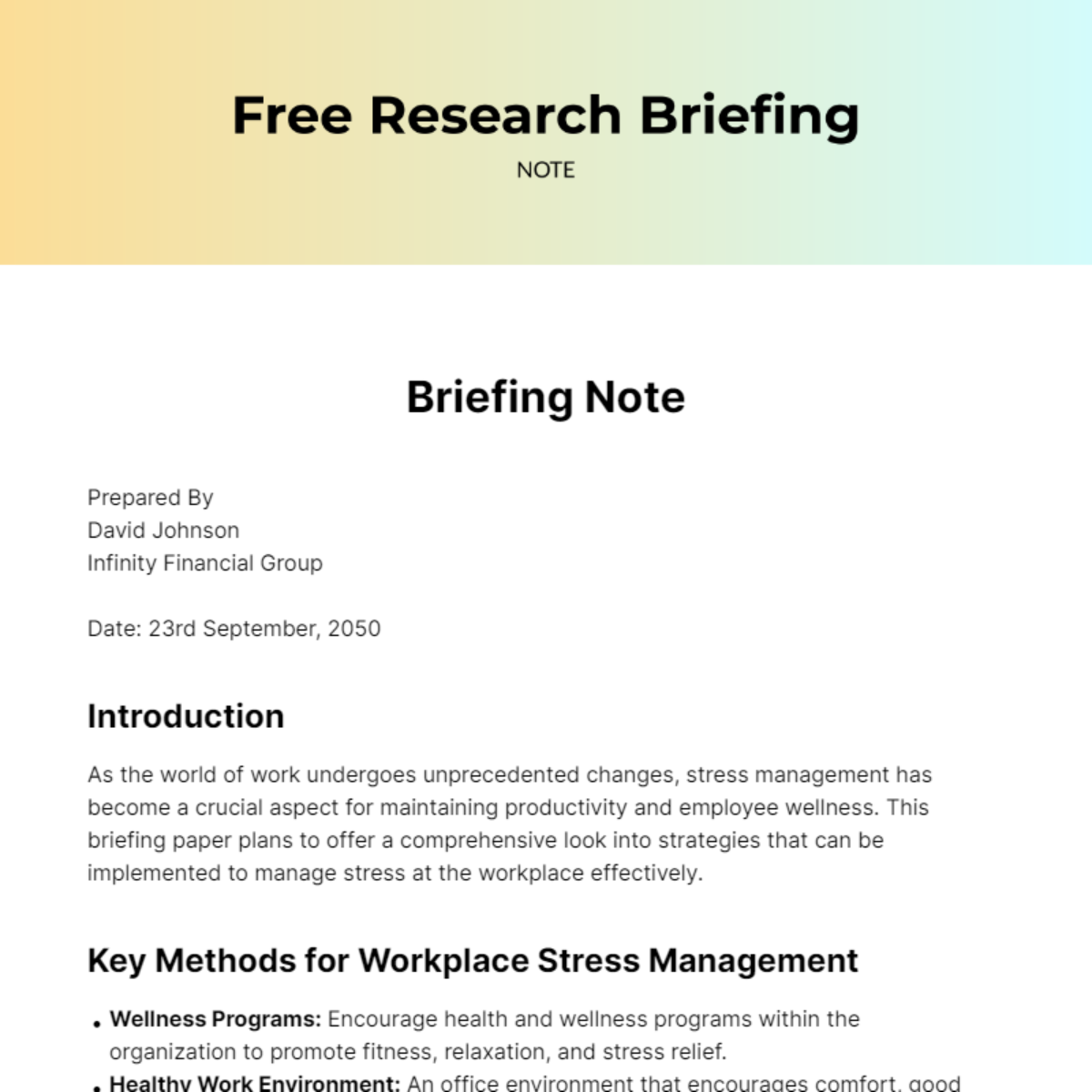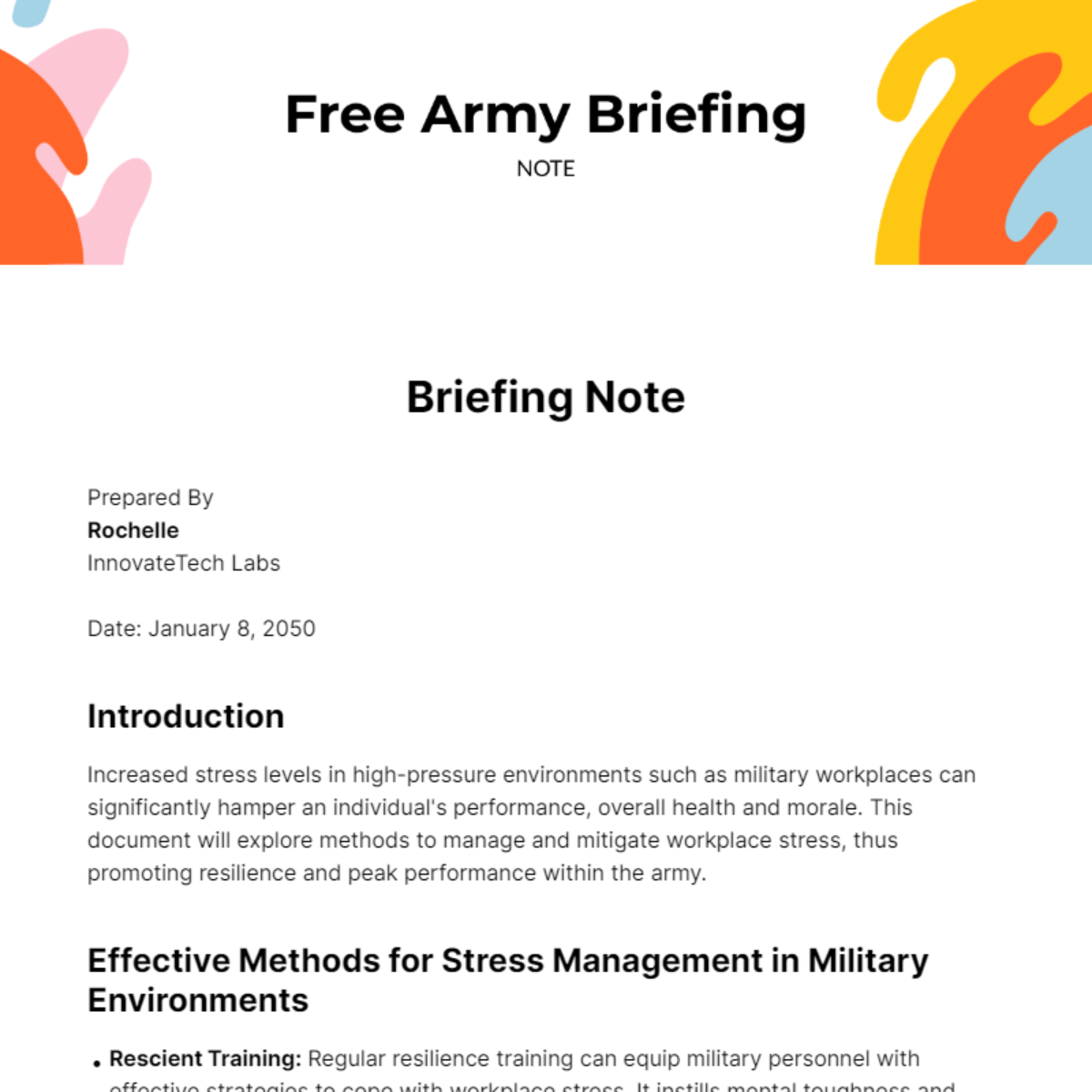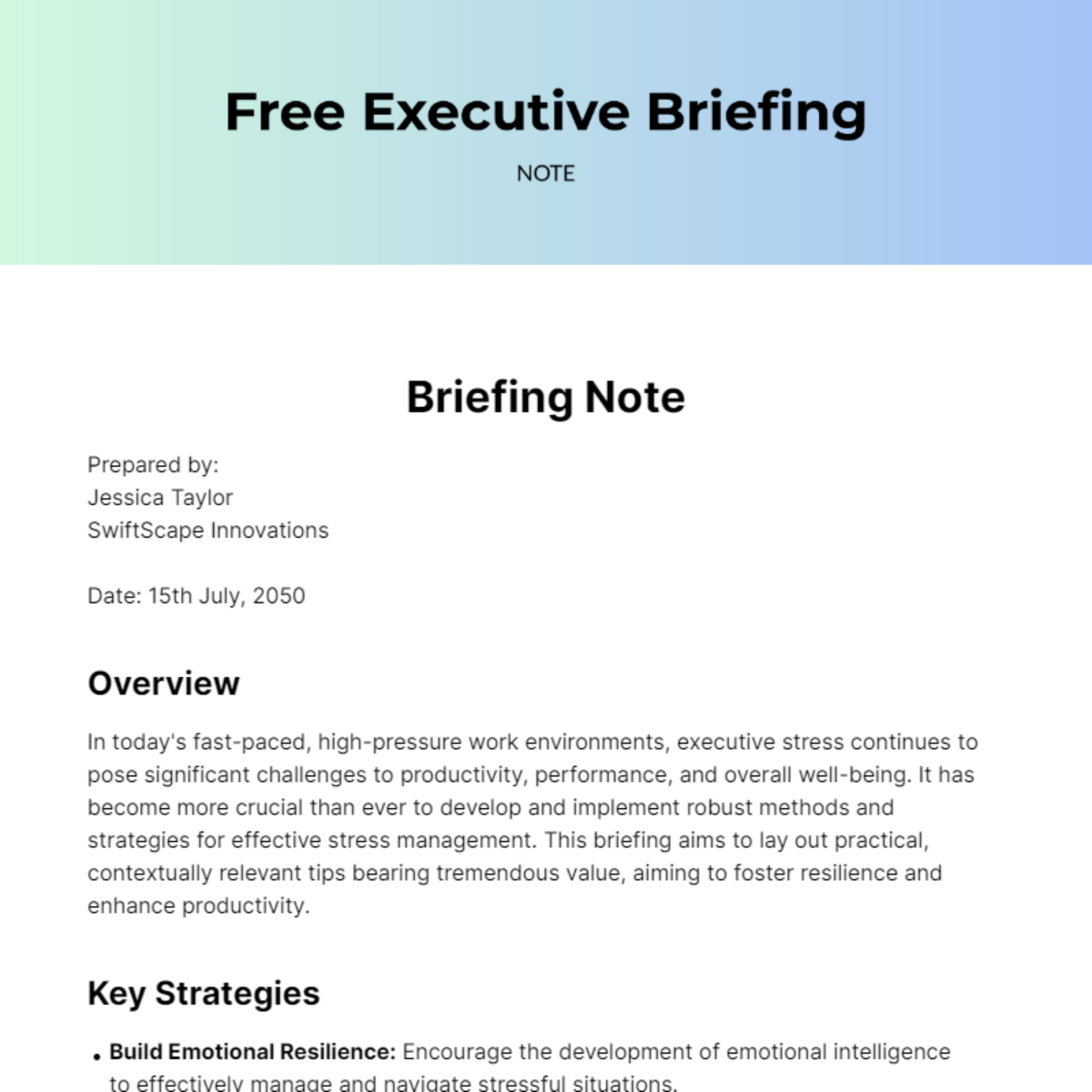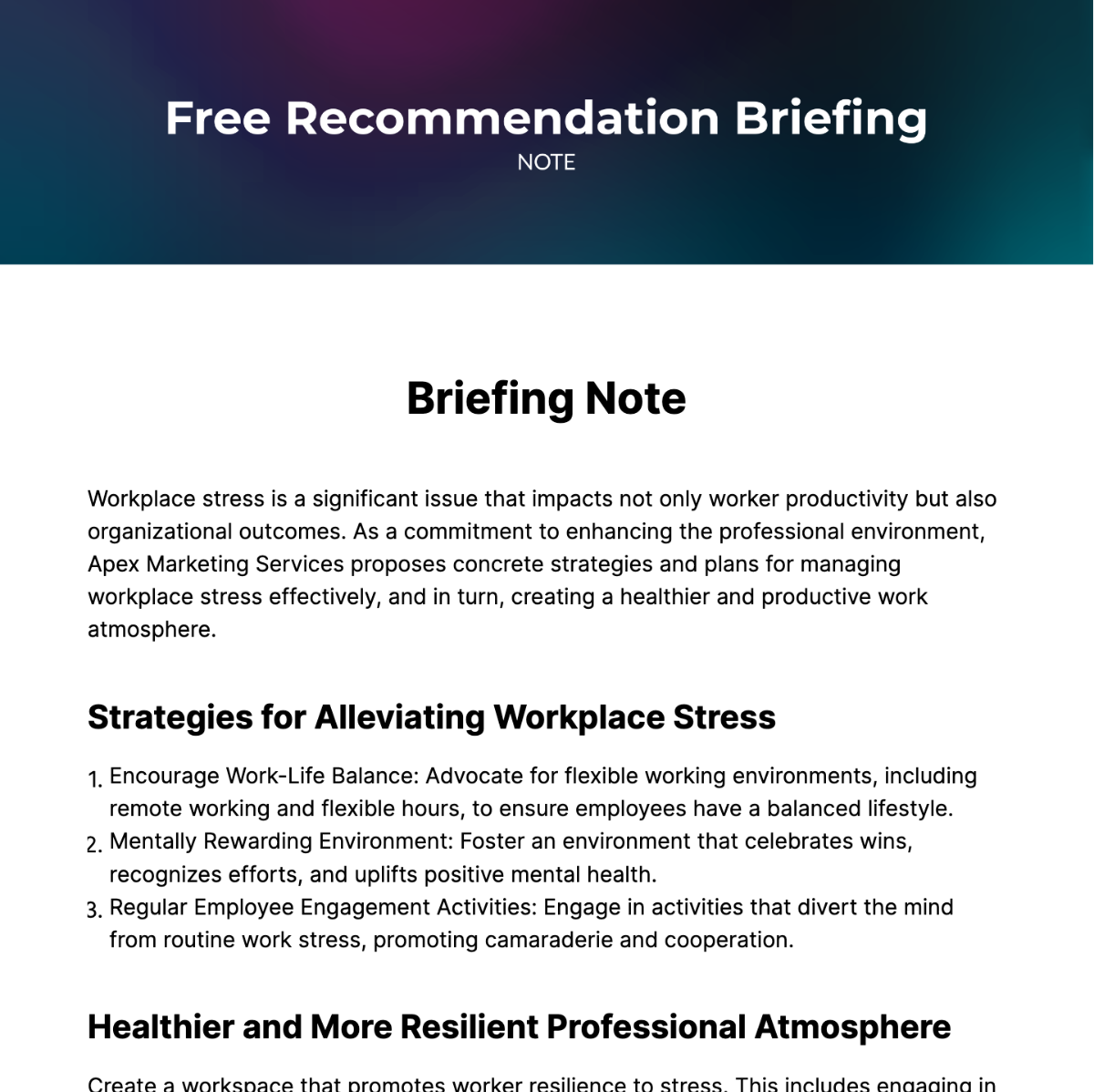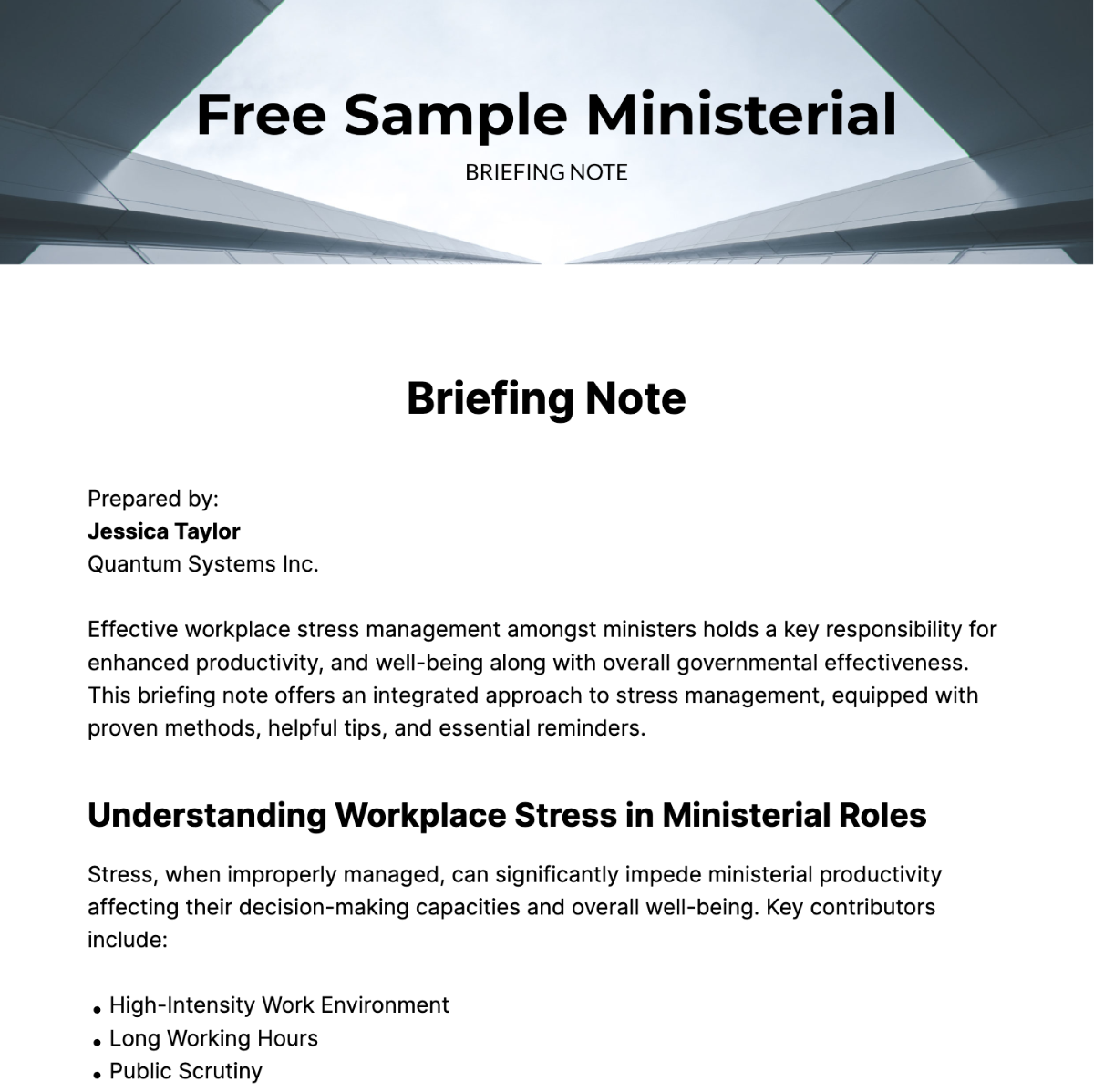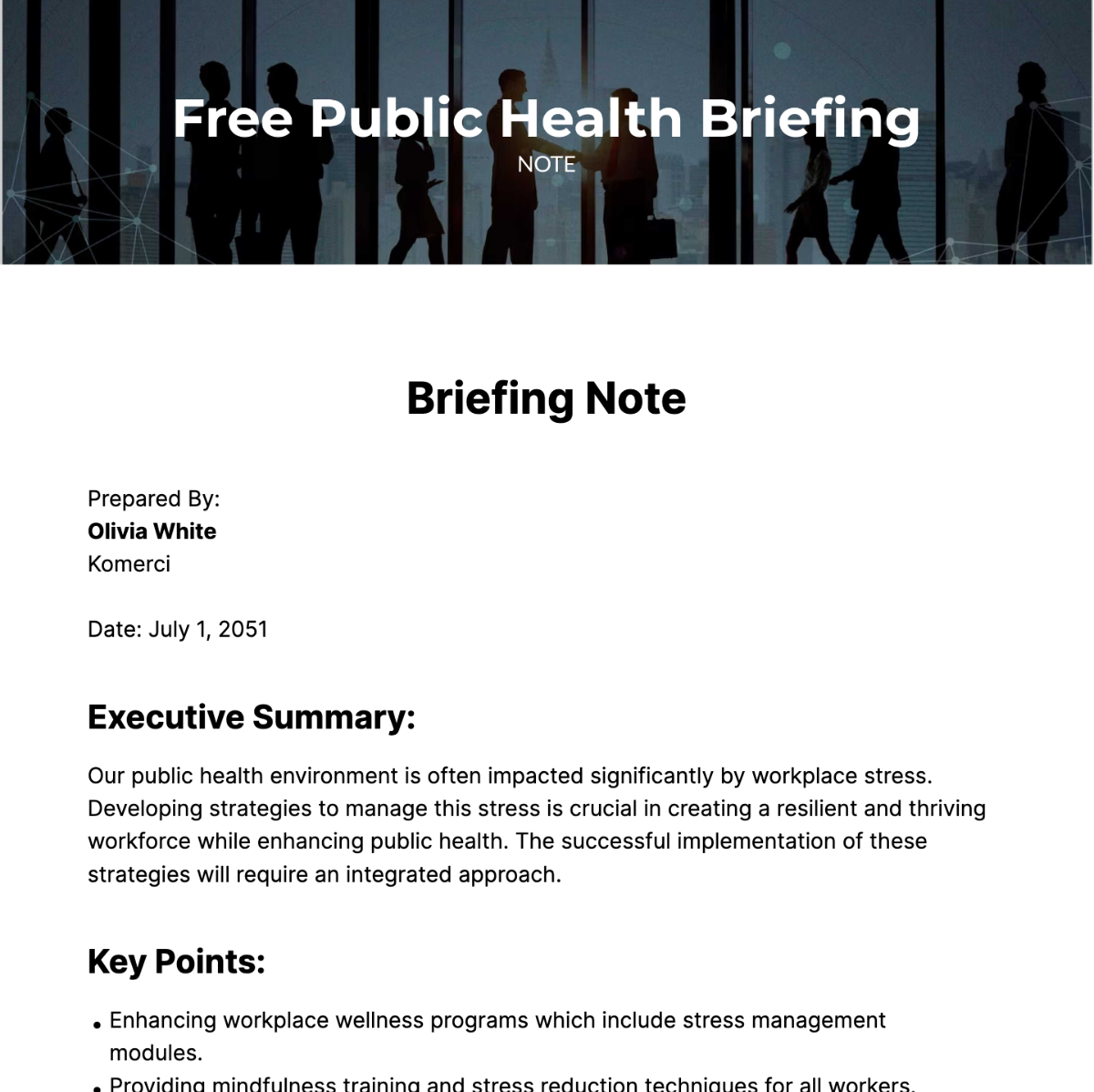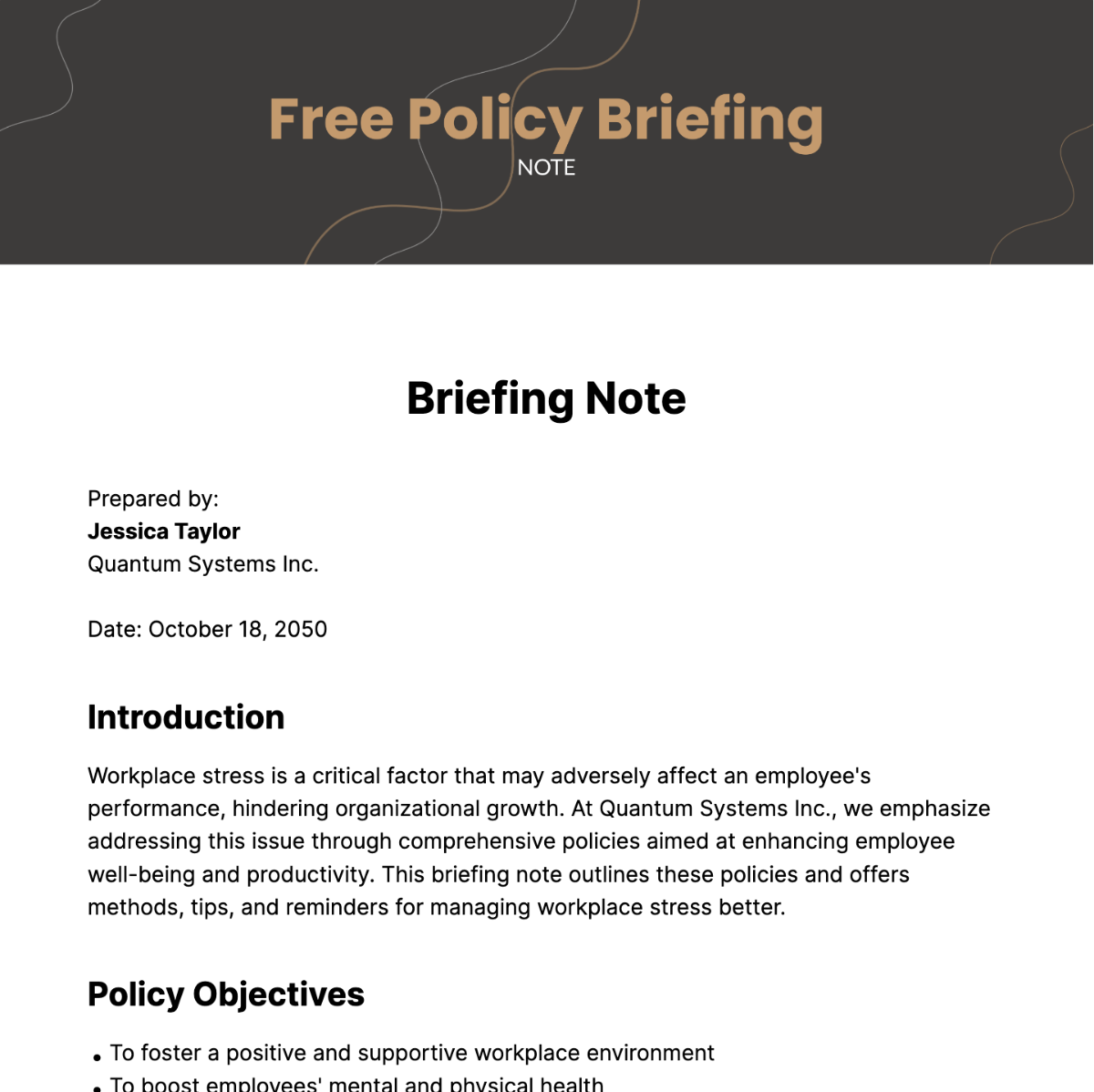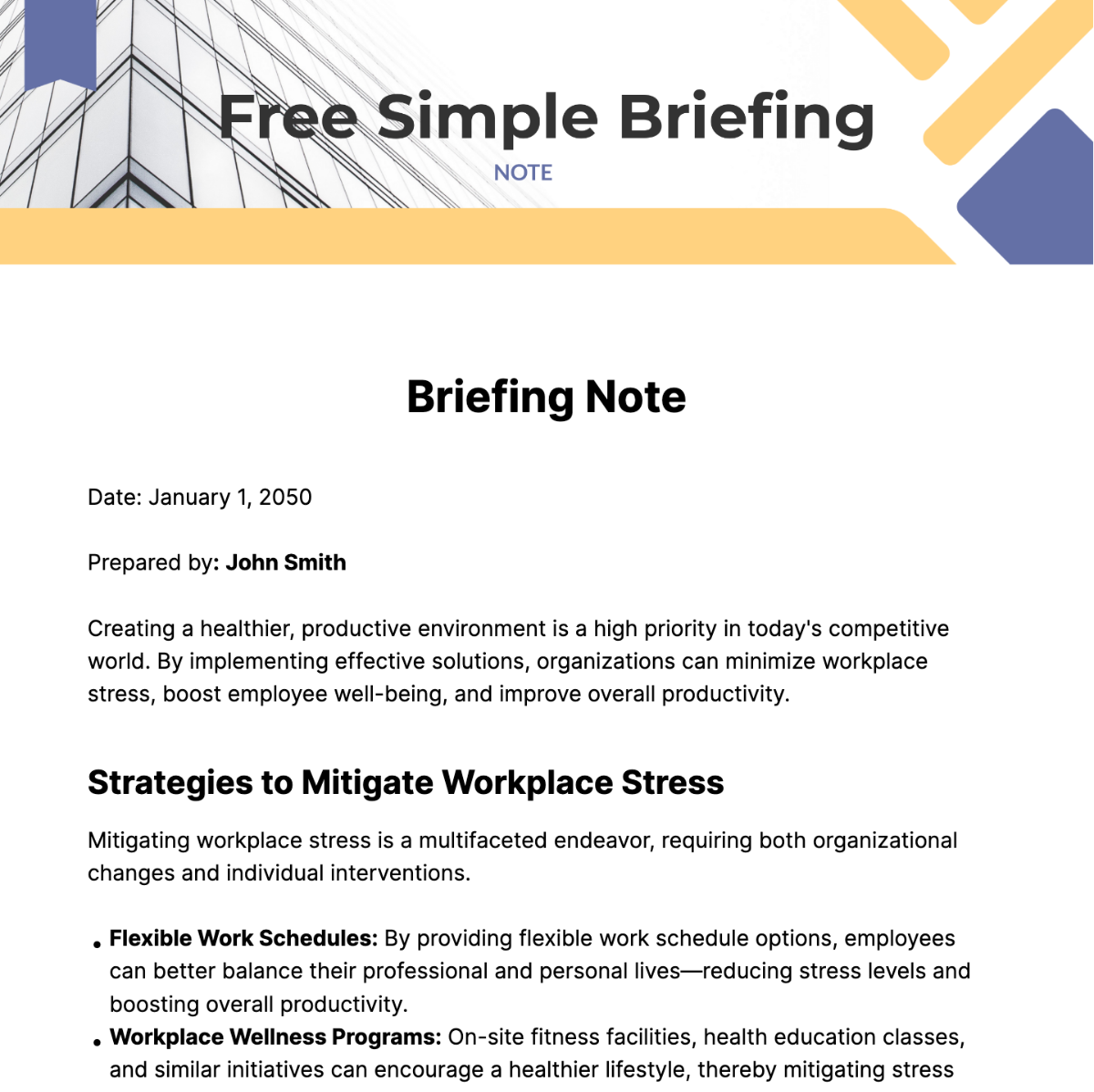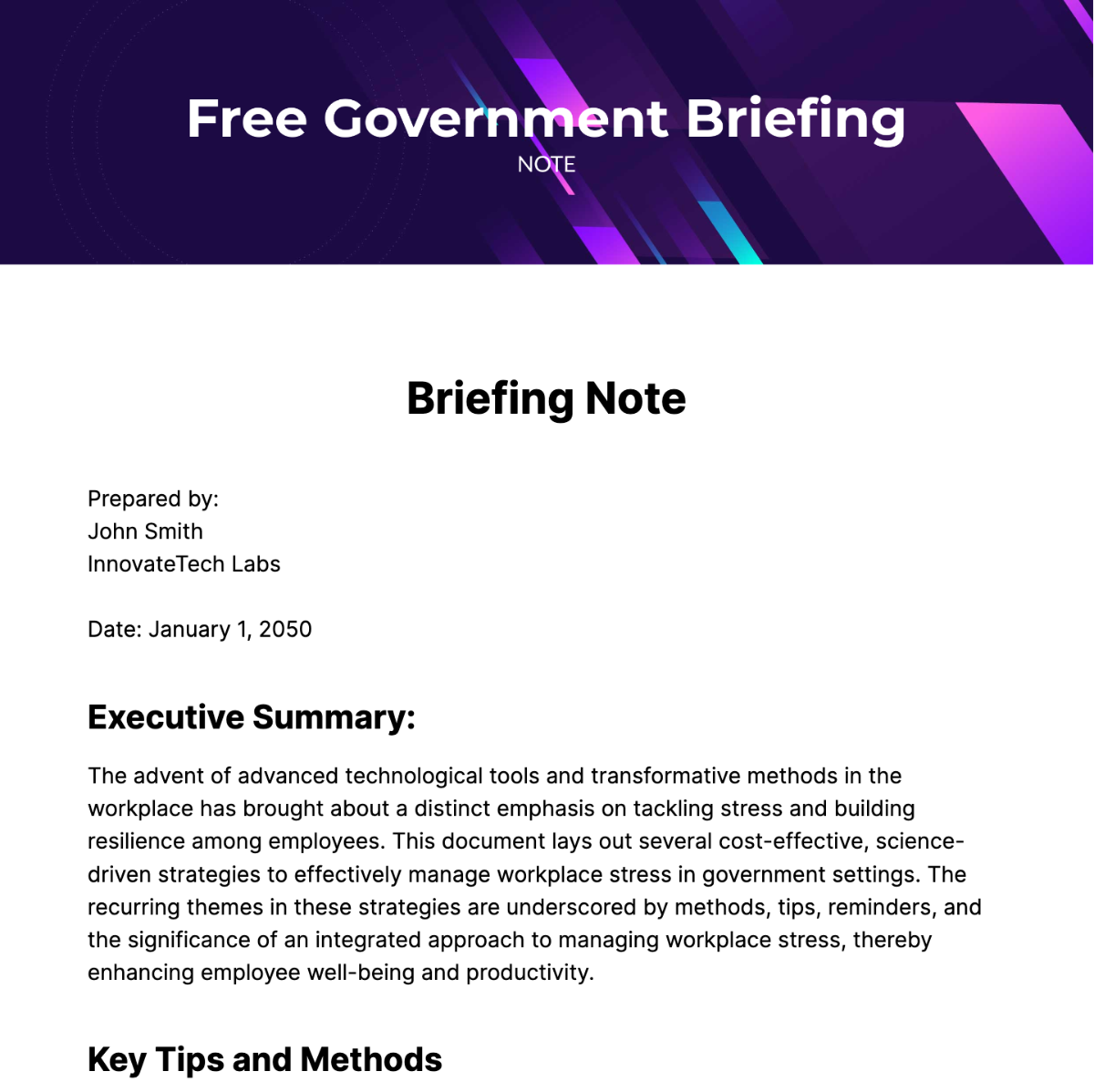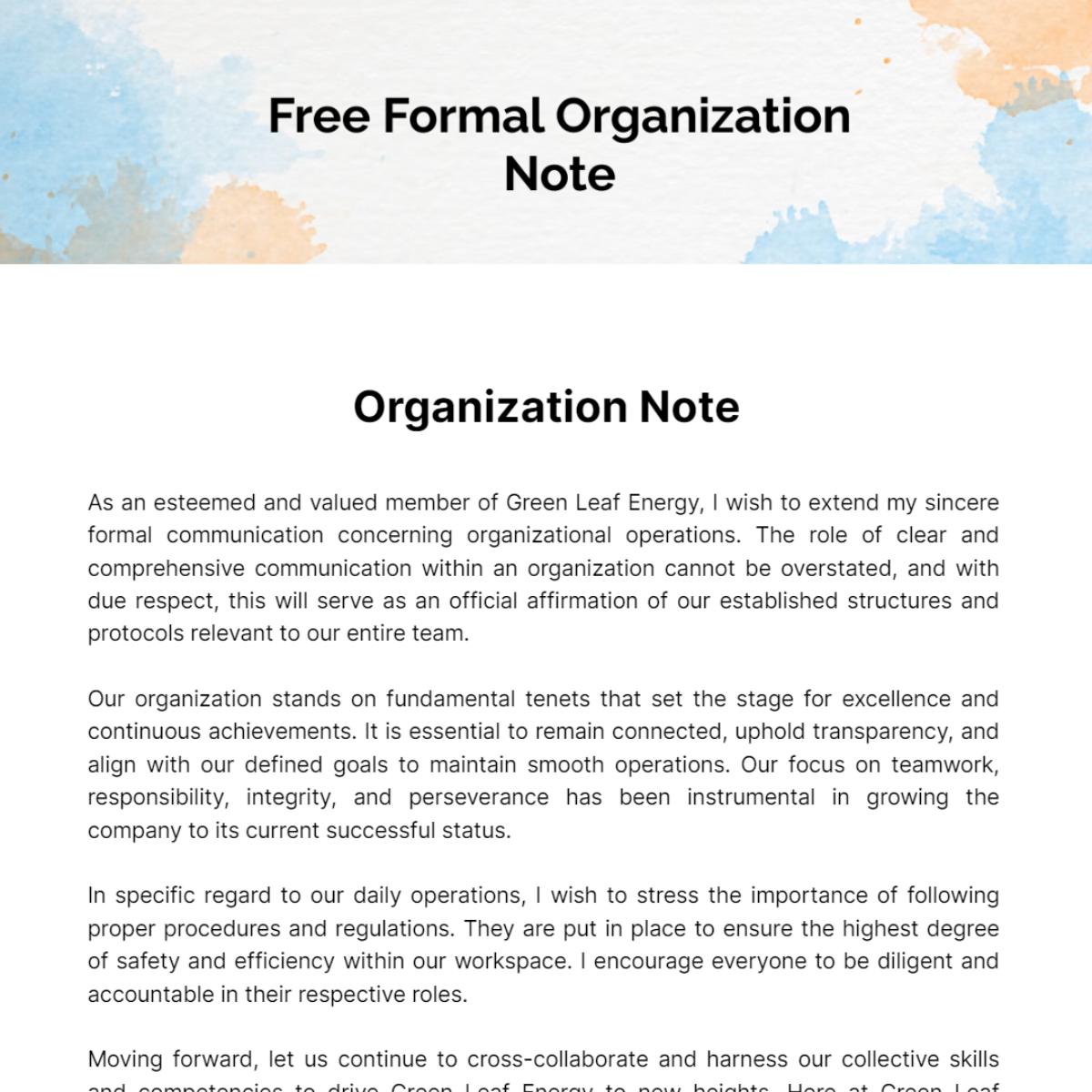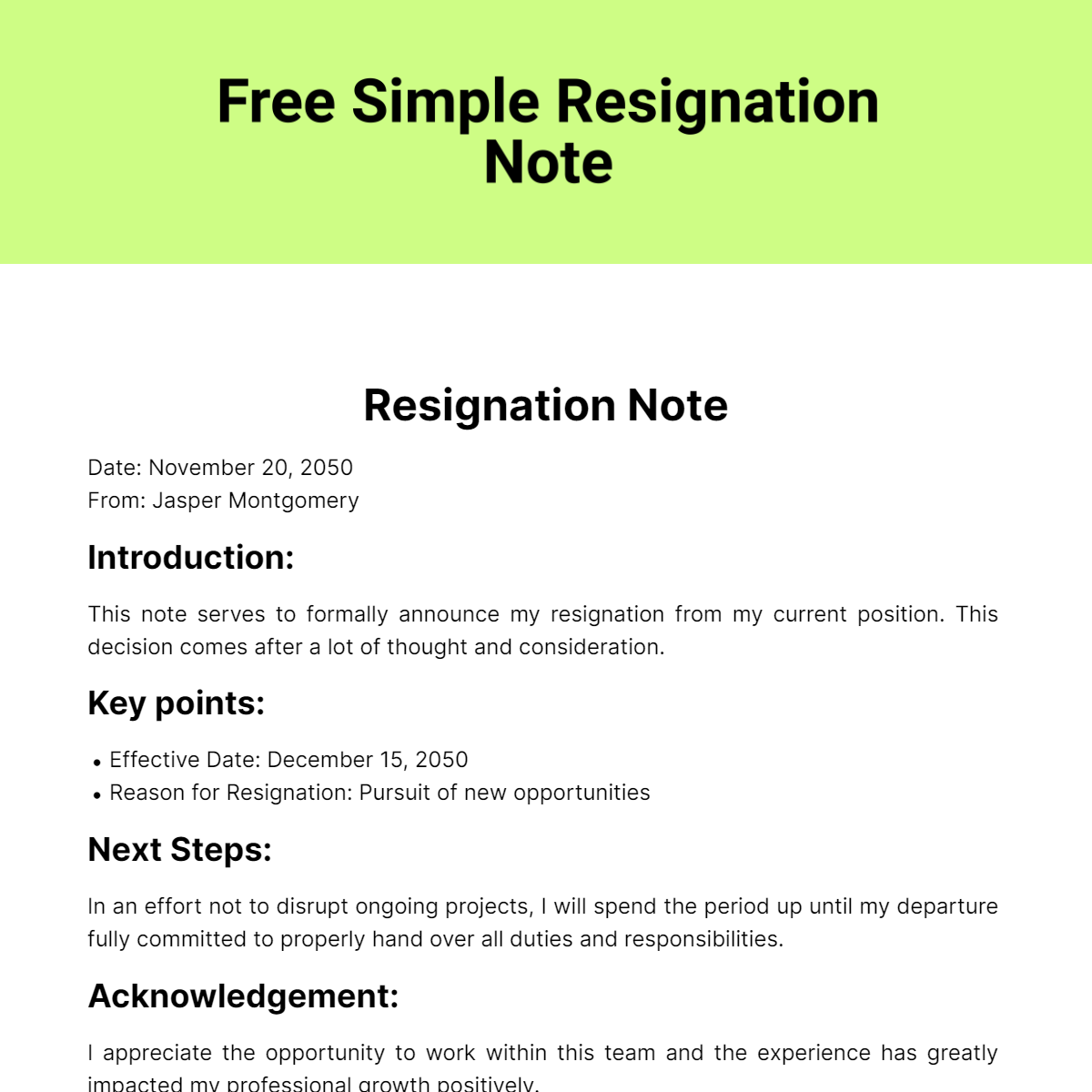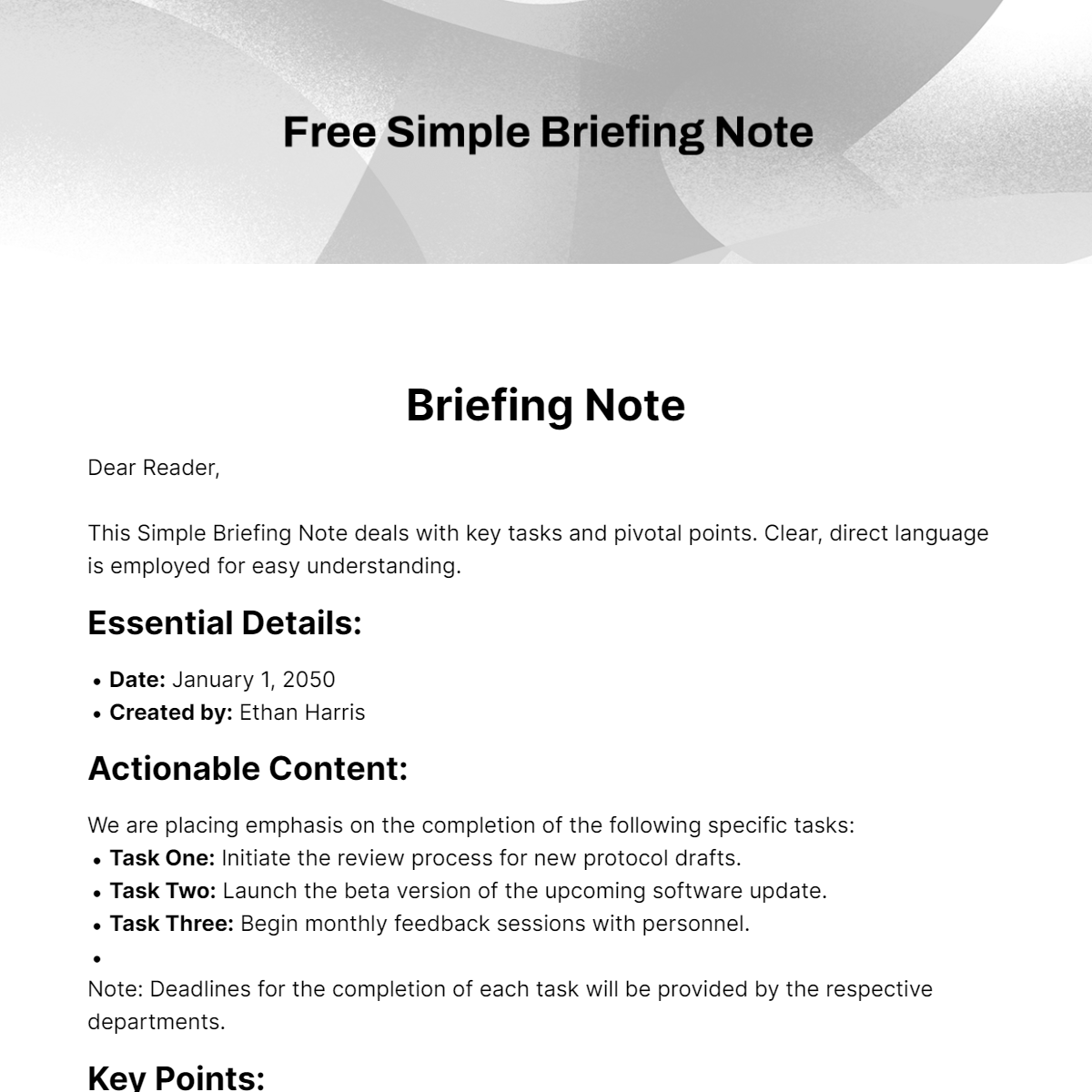Briefing Note
Prepared By
David Johnson
SwiftScape Innovations
Date: 19th February, 2050
Executive Summary:
The legal profession has become increasingly demanding resulting in heightened workplace stress. This Briefing Note explores effective methods to manage and alleviate such stress to ensure overall well-being, job satisfaction, and optimal legal performance. The inclusive strategies discussed here integtate a balanced combination of both professional and personal approaches to managing stress in the legal workplace.
Background:
Legal professionals are routinely subjected to stressful situations and high expectations, significantly undermining their mental health and job satisfaction. Failure to manage this stress can lead to decreased productivity, burnout, mental health issues, and lower retention rates. Recognizing and managing workplace stress is, therefore, an essential step towards maintaining a healthy working environment.
Strategies for Stress Management:
1. Time Management:
Creating a structured daily routine helps manage tasks efficiently, reducing the pressure of deadlines.
Breaks should be scheduled into the daily routine to avoid overworking and fatigue.
2. Wellness and Fitness:
Connect physical well-being with mental health. Regular exercise, balanced diet and adequate sleep act as stress relievers.
Mental health strategies, like meditation and mindfulness exercises, can be incorporated into daily routines for stress relief.
3. Professional Support:
Engage professional therapists or stress management consultants. They can provide customized strategies for individuals or teams.
An open and supportive work culture allows employees to express concerns about their stress levels without fear of prejudgement or reprisal.
Conclusion:
Workplace stress in the legal profession is a pressing issue that needs immediate attention. By effectively employing these stress management tips and reminders, legal professionals can not only significantly reduce their stress levels, but also increase their productivity, job satisfaction, and overall well-being. The management commitment to creating a mentally healthy workplace not only benefits its employees, but it also contributes positively to the firm's performance and reputation.
